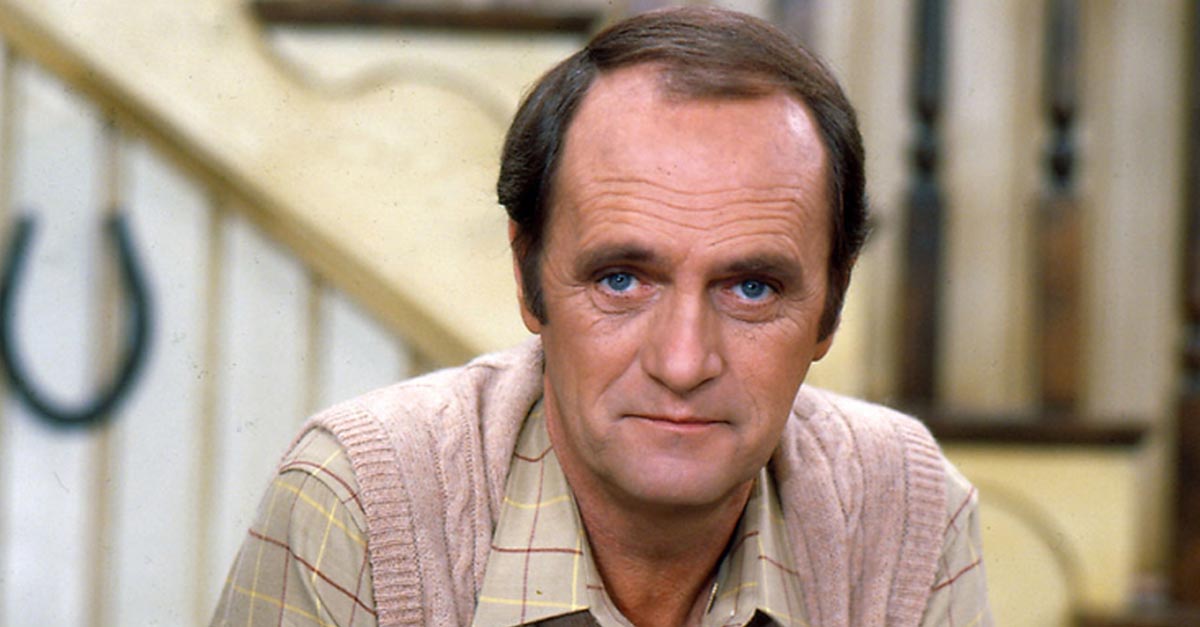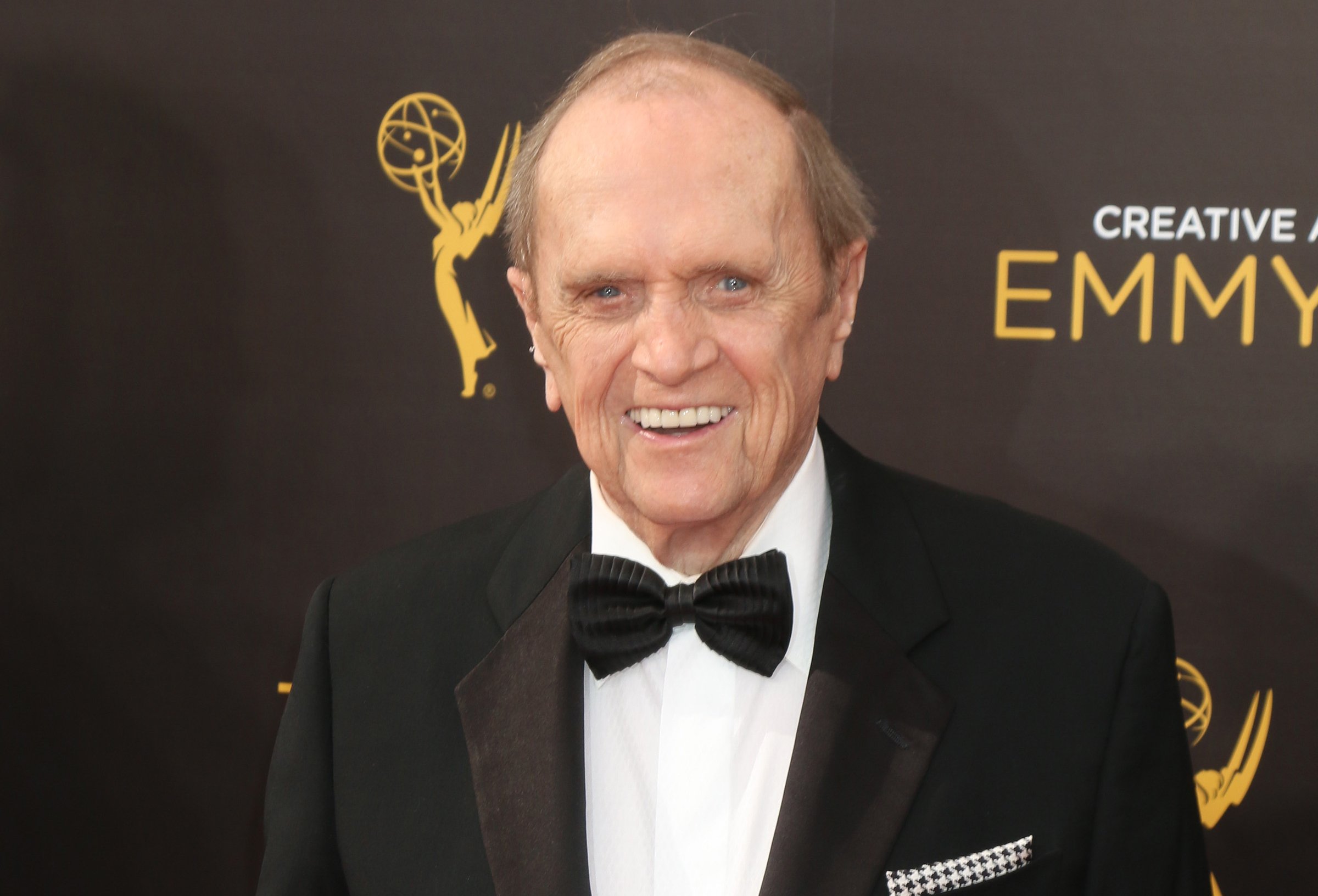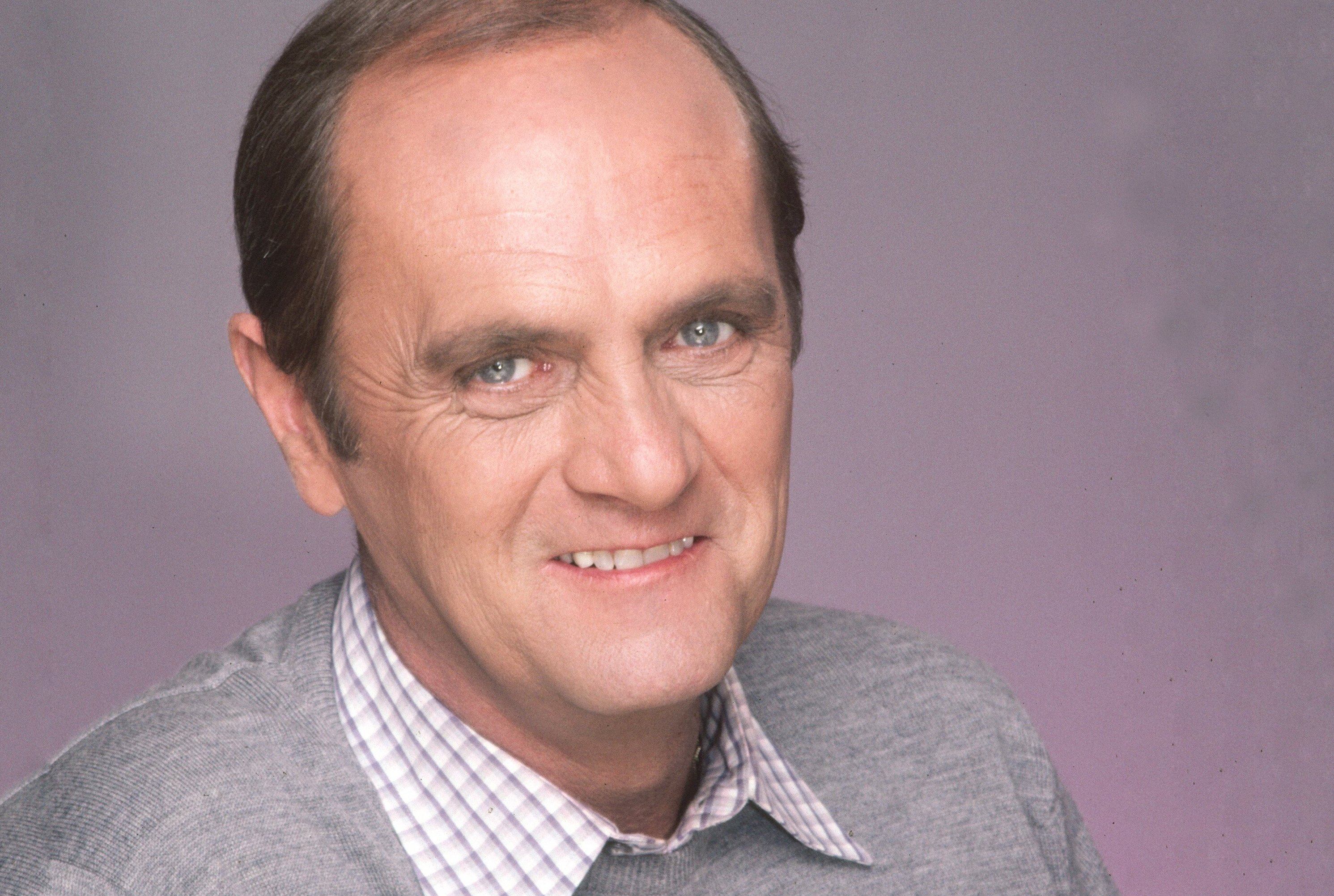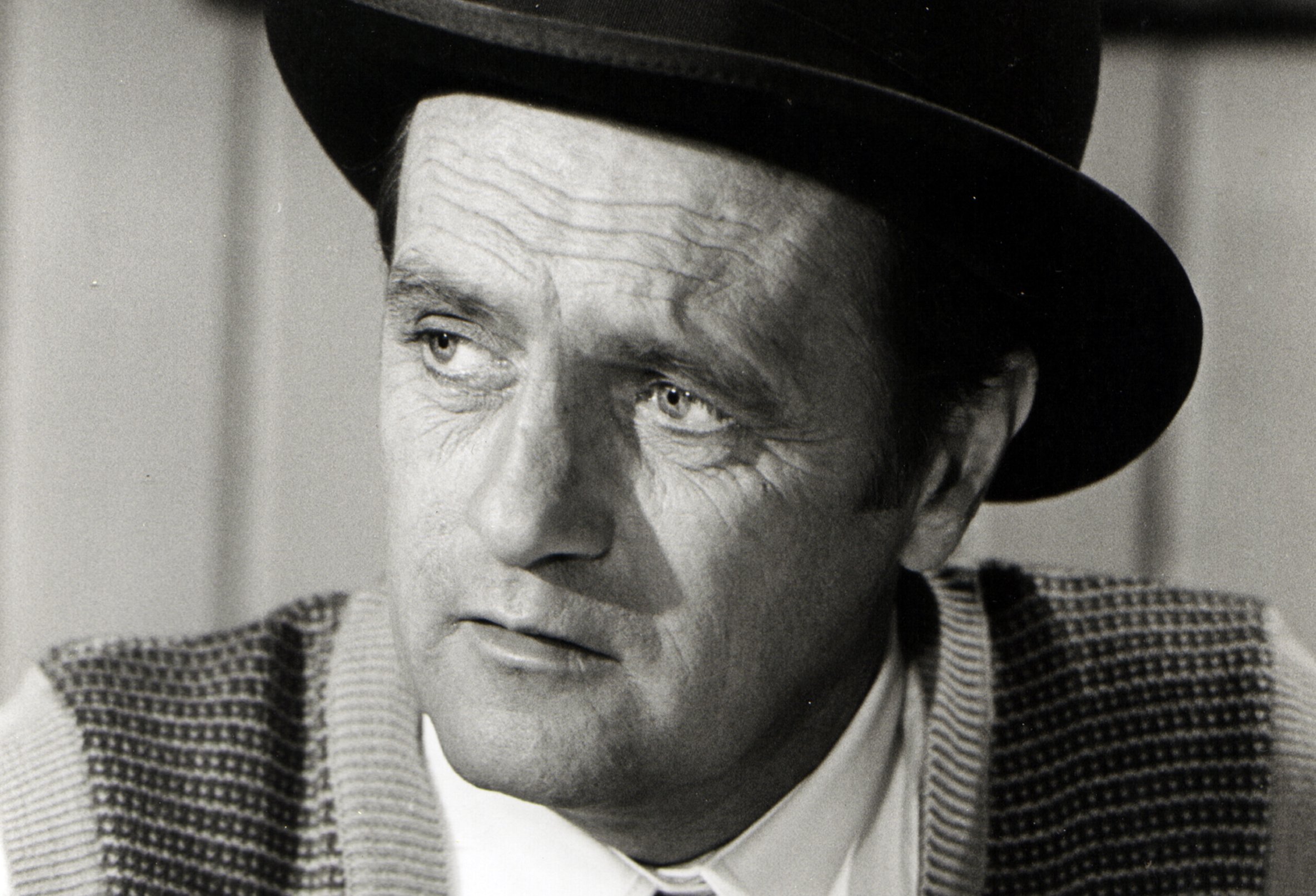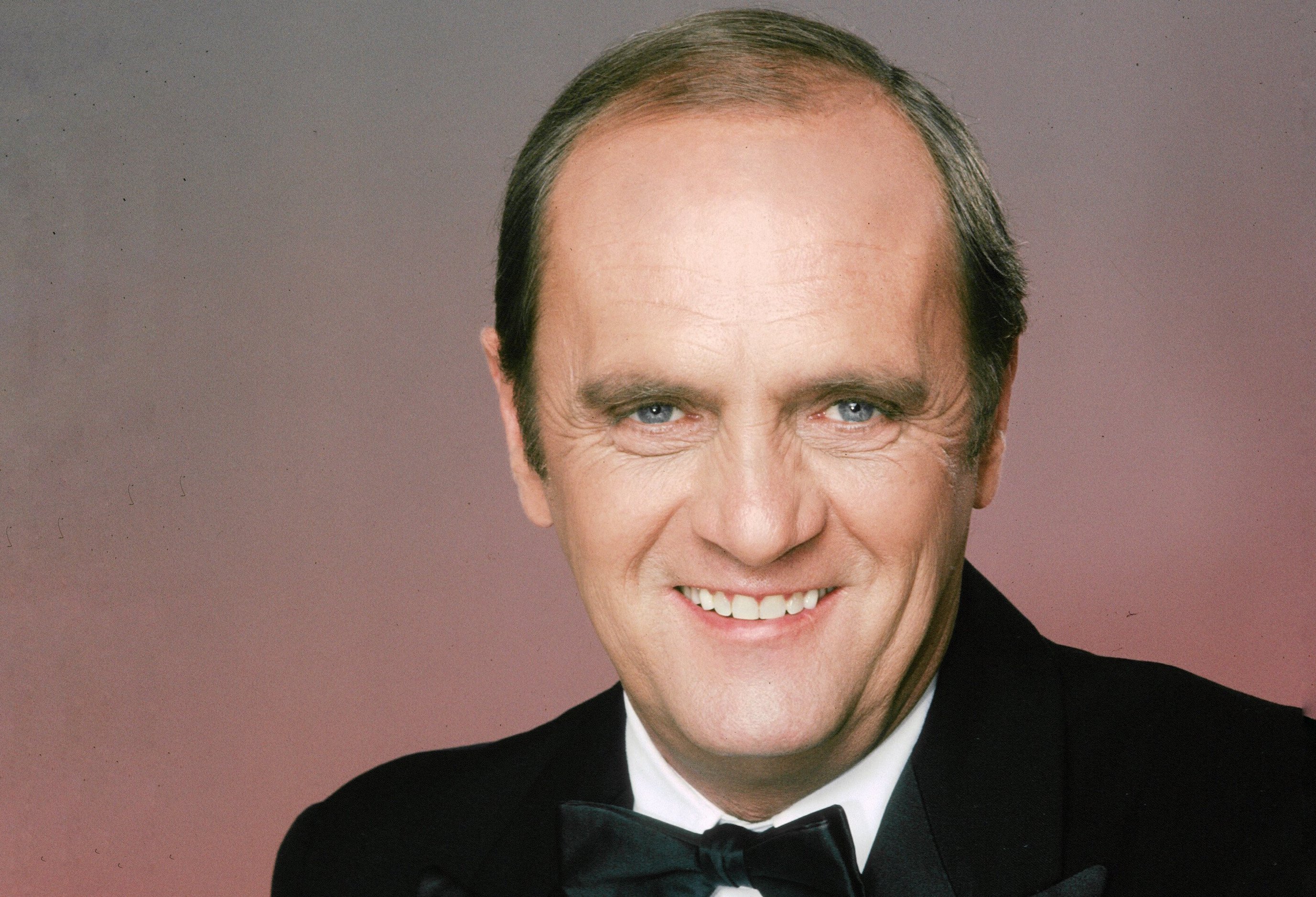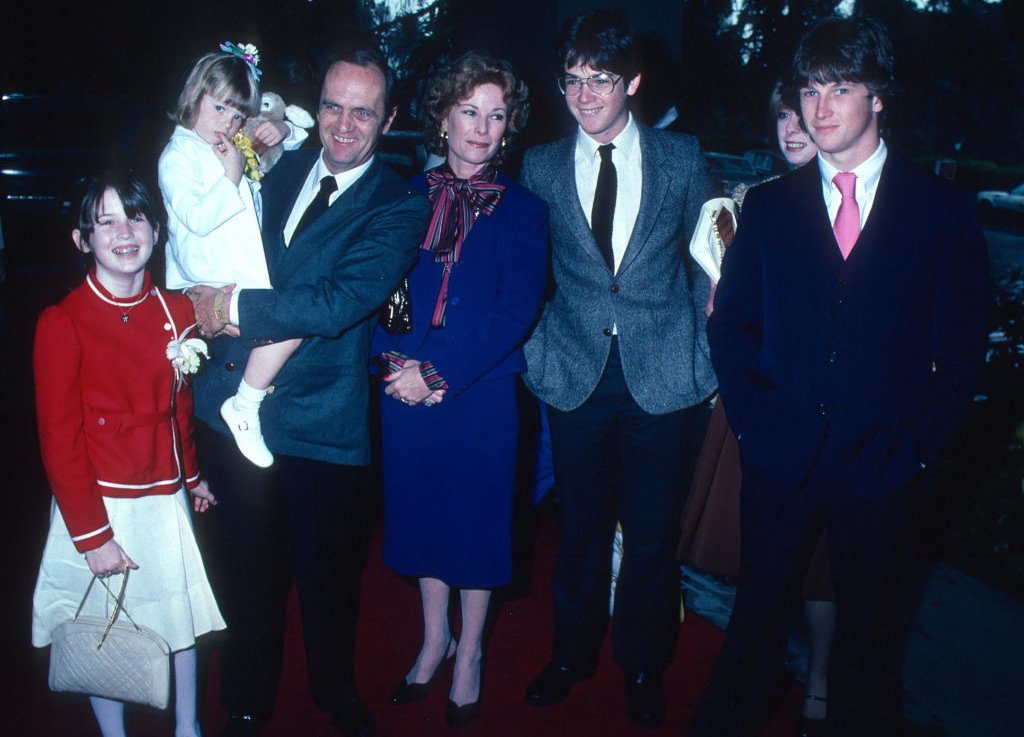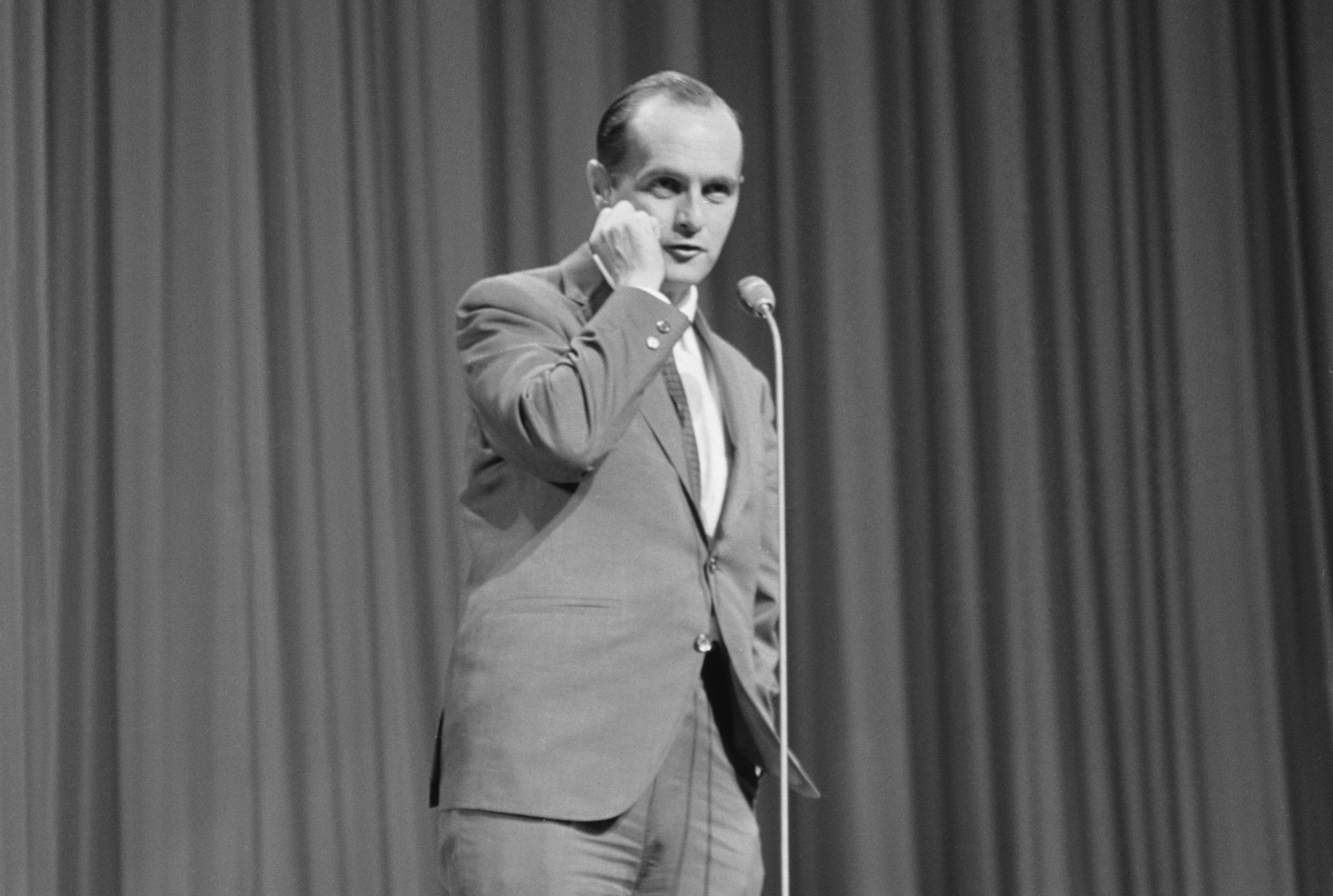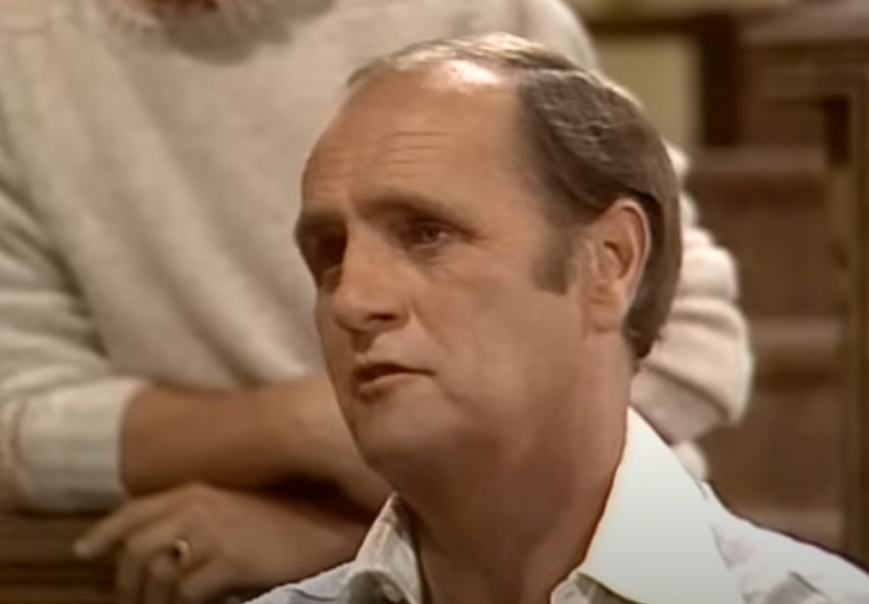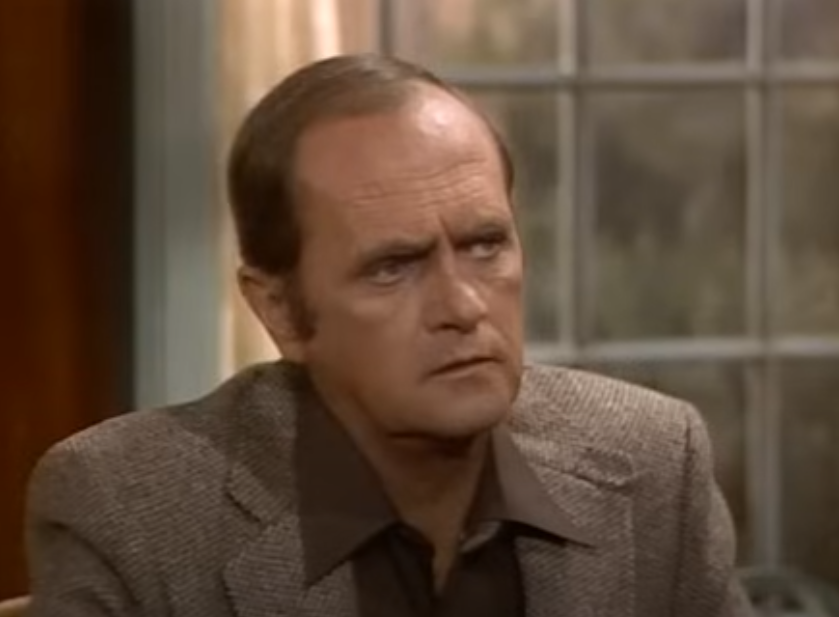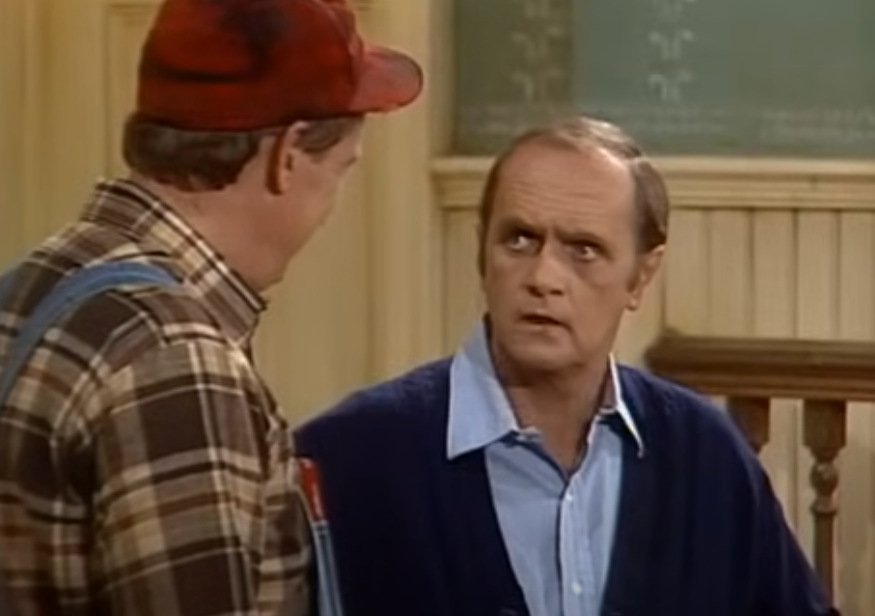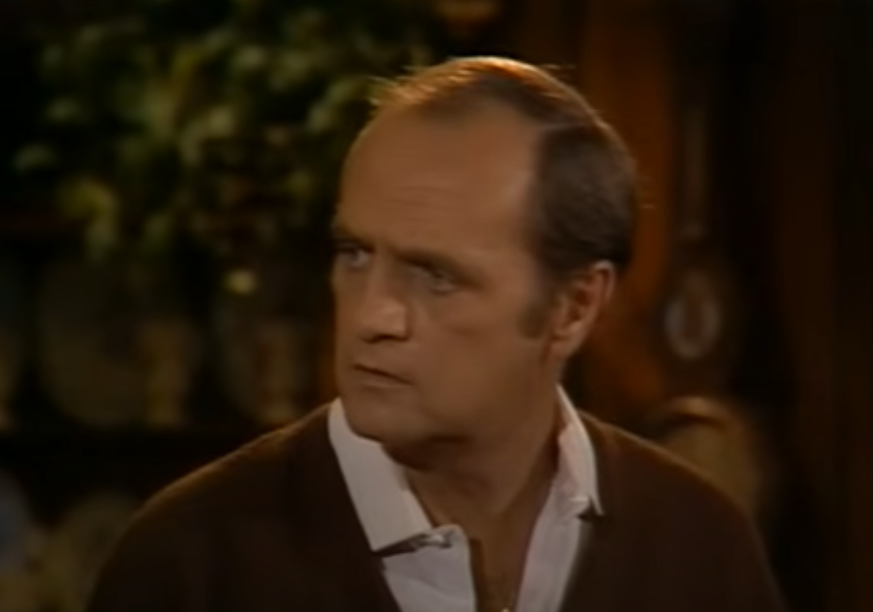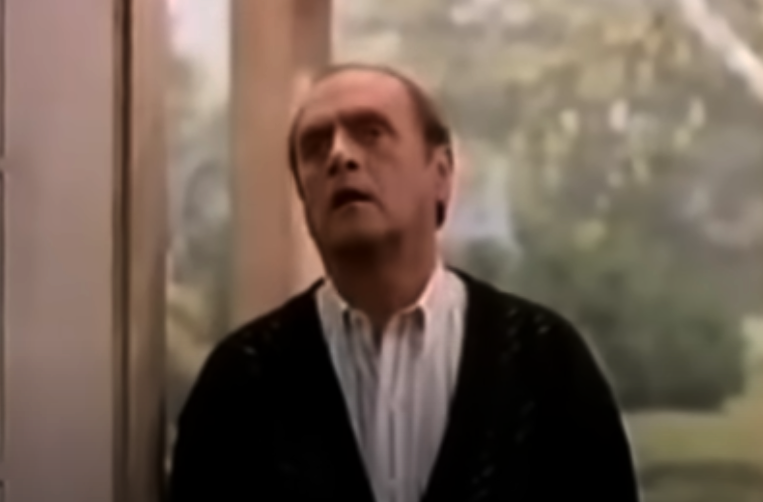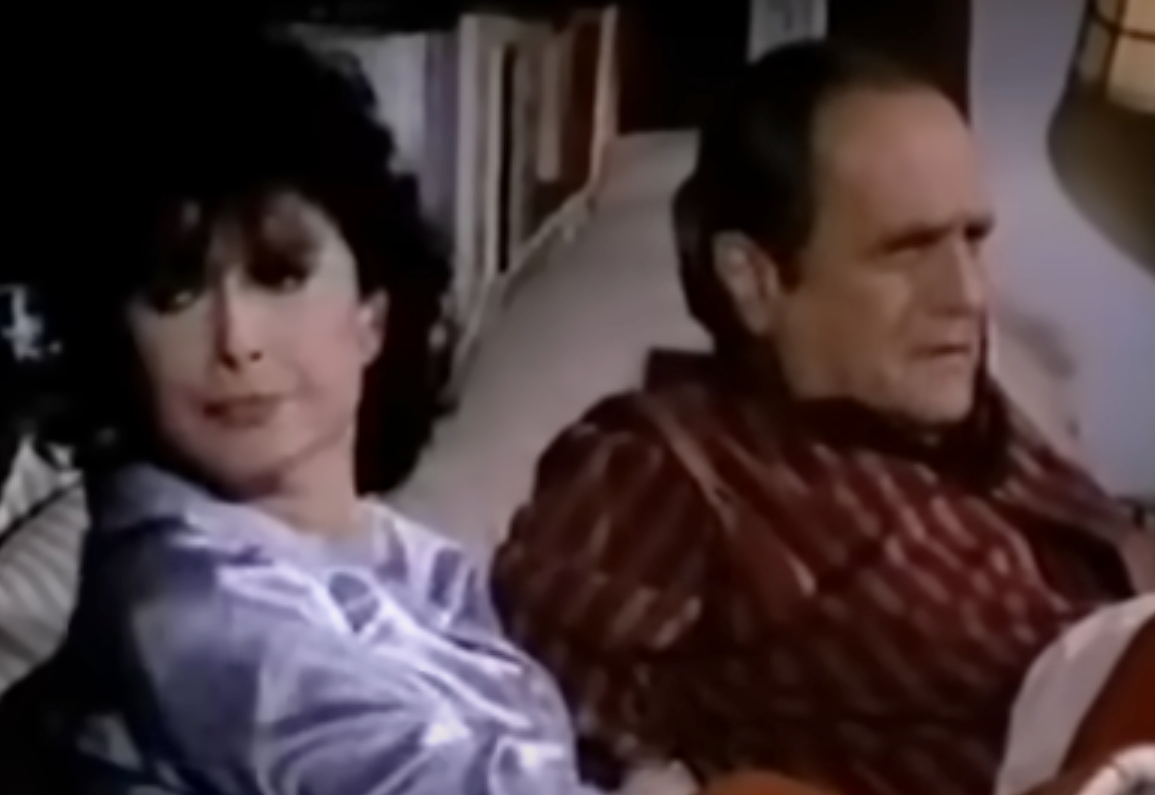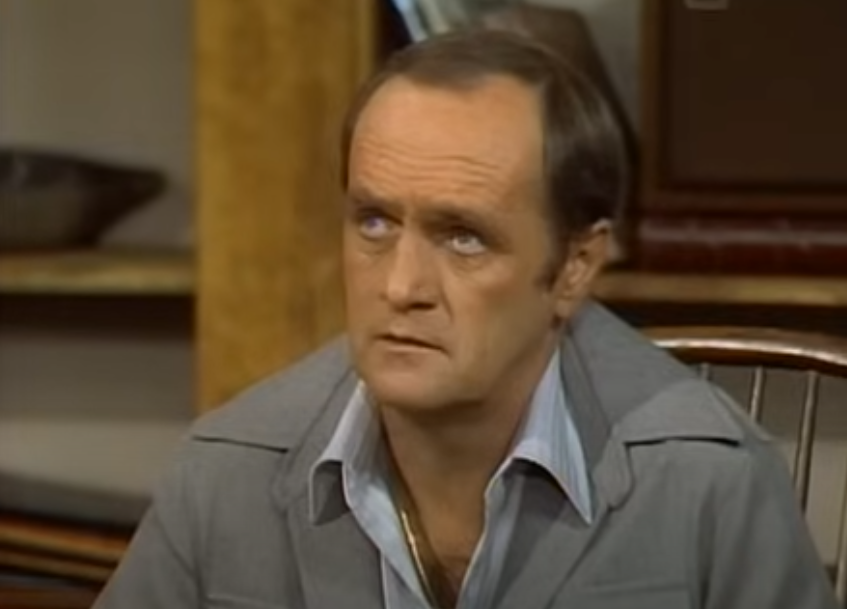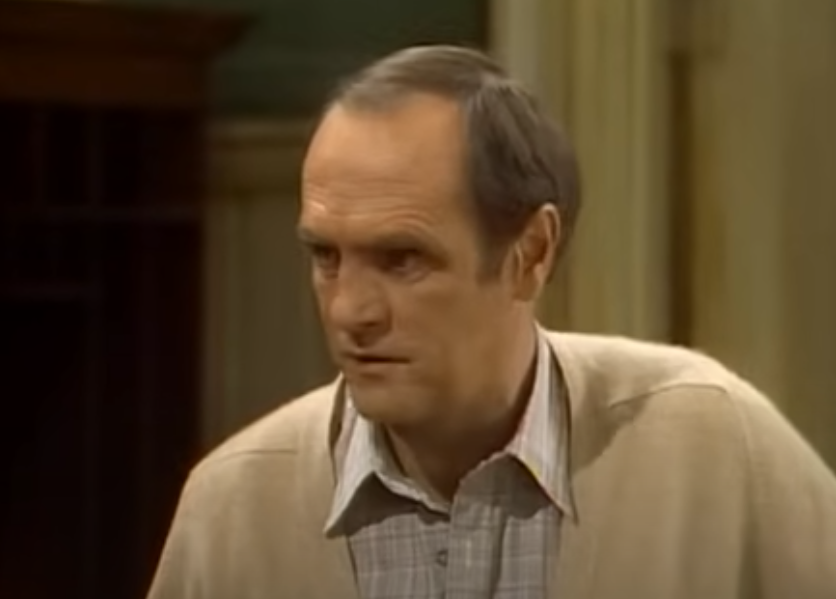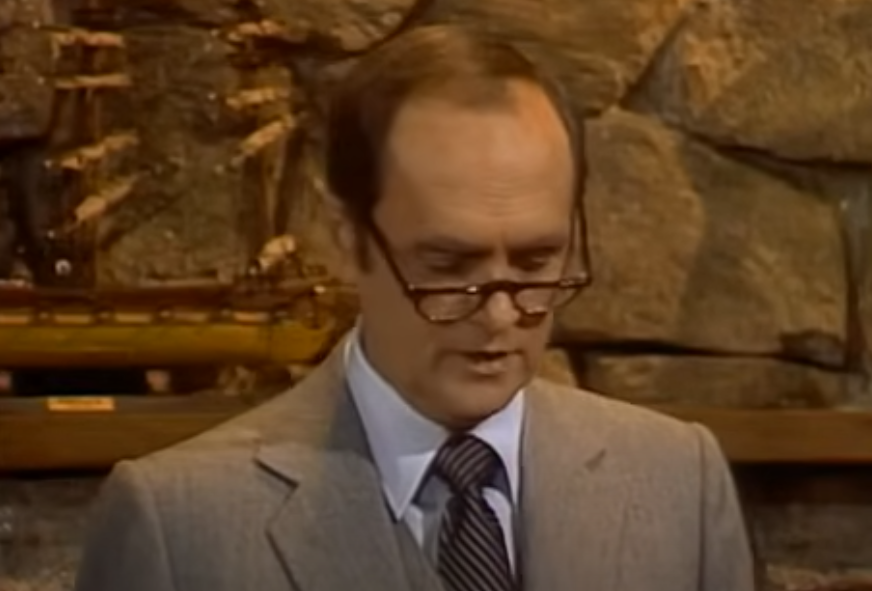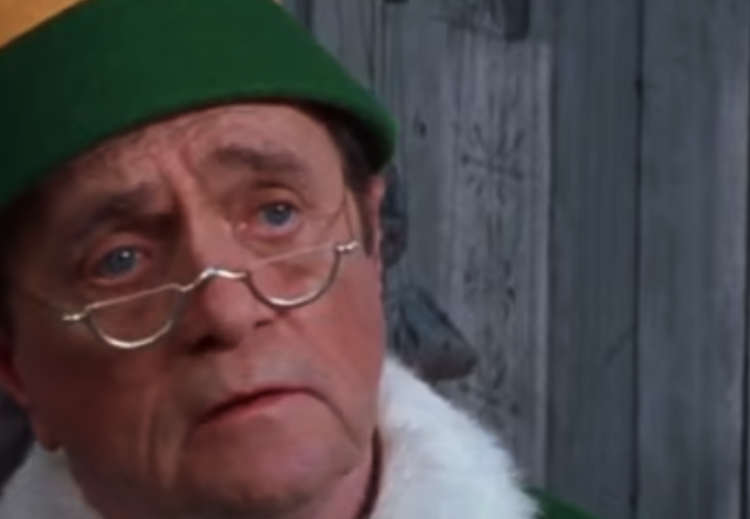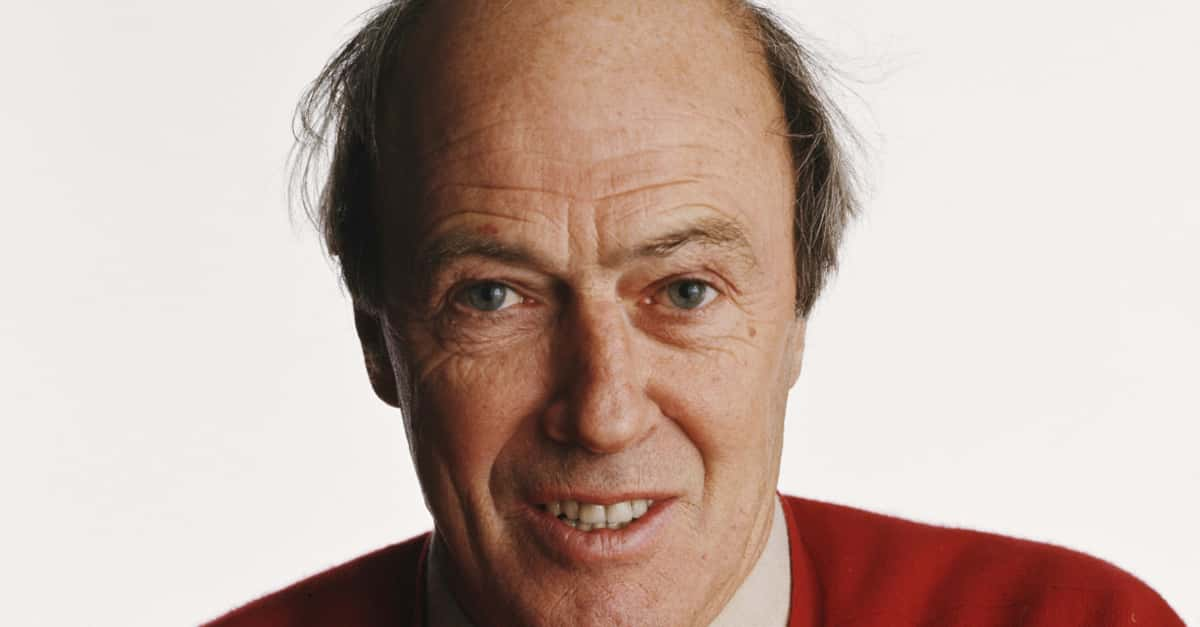He Was A King Of Comedy
Bob Newhart shot to fame for his stammering, deadpan standup comedy albums in the 1960s. What ensued was a decades-long TV and film career that delivered as many on-screen laughs as it did off-screen giggles. Plus a controversy—or two.
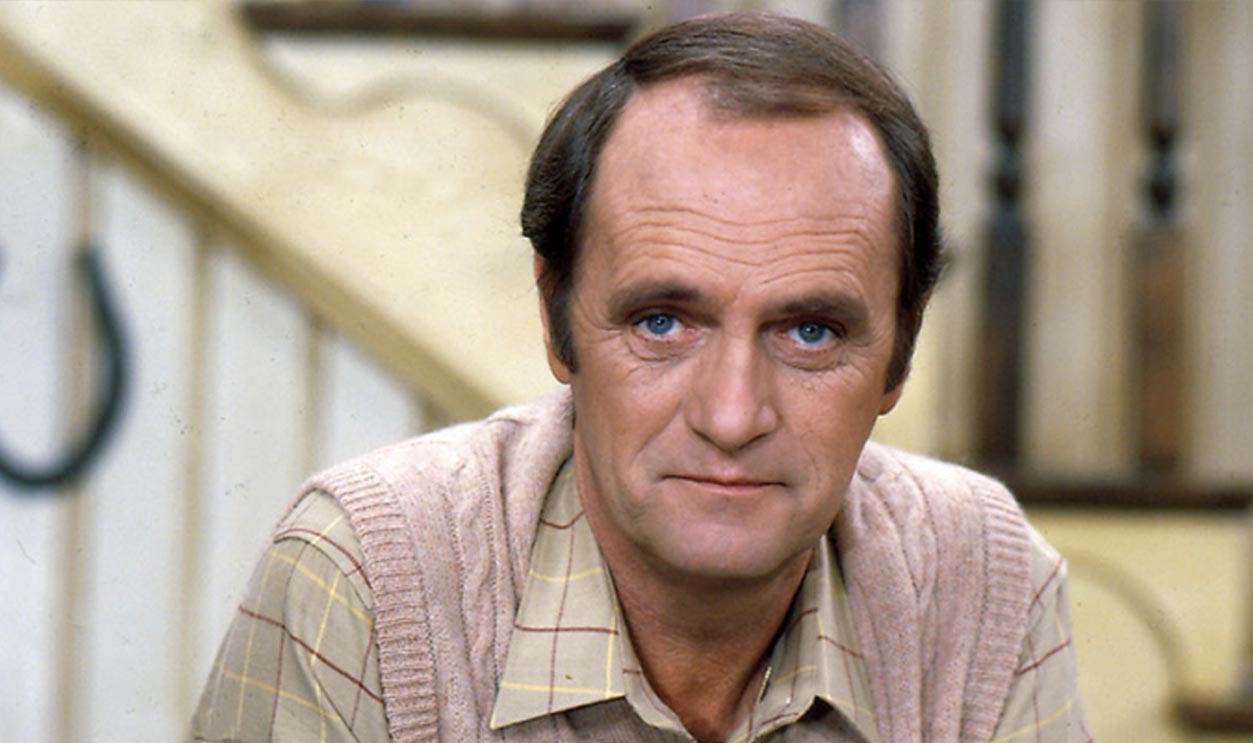
1. He Chose To Be “Bob”
George Robert Newhart was born in 1929 and named after his father, a plumbing supply business owner. But having two Georges in the house was a recipe for chaos. To keep things simple, young Newhart opted to go by his middle name—Bob—a choice that would stick for life.
2. He Didn’t Learn Comedy In School
If you told someone who knew young Bob Newhart that he'd become a stand up comedian, they probably would have laughed. One local historian called his conservative family "very Catholic". He attended a Jesuit prep school before enrolling at Loyola University Chicago, where he took a notably un-funny major: business management.
But despite his buttoned-up education, comedy was always lurking in the background.
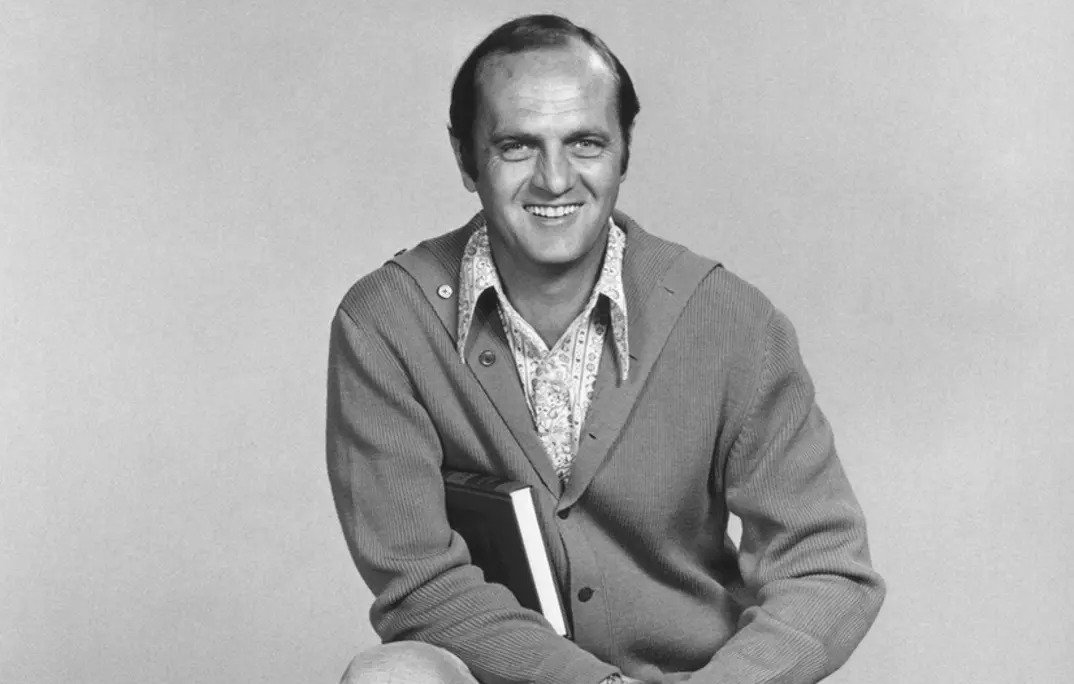 CBS Television, Wikimedia Commons
CBS Television, Wikimedia Commons
3. He Pushed Paper In Korea
It already seemed like young Bob Newhart couldn't be further from the stage, and then after college, he got the shock of a lifetime: He was picked in the draft—and there was a war on. Luckily for him, he spent his service years as a clerk rather than on the frontlines of the fighting in Korea.
After a discharge in 1954, Bob Newhart returned stateside to pursue what he thought would be an unremarkable existence. And, at first, it was.
4. He Was A Terrible Accountant
Before comedy paid the bills, Newhart worked as an accountant at United States Gypsum. But his approach to balancing the books could have been a comedy routine all its own. Rather than tracking down small financial discrepancies, he simply covered imbalances with his own money. As he later admitted, he “lacked the temperament” for accounting.
Fortunately, he found a better fit.
5. He Used The Office Phone For More Than Just Work
In 1958, Newhart got his start in the entertainment industry…kind of. He landed a job as an advertising copywriter for a film and TV production company in Chicago. But instead of brainstorming commercial scripts, he and a co-worker entertained themselves by making absurd phone calls to each other.
These offbeat conversations that he recorded and sent to radio stations would (accidentally) launch his comedy career.
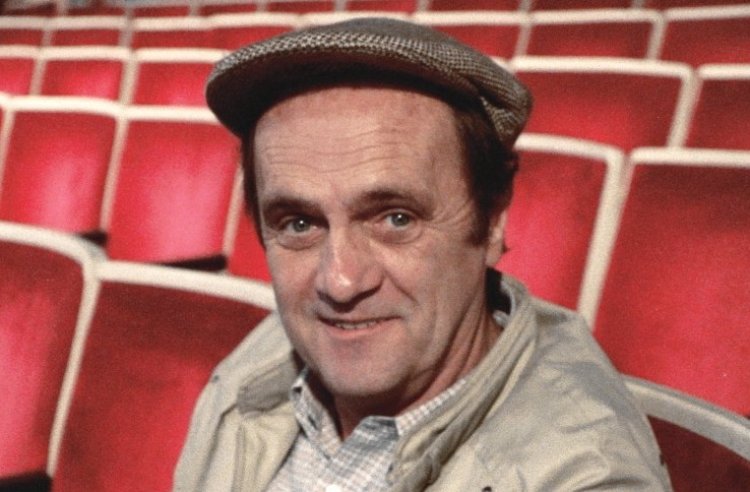 Alan Light, CC BY 2.0, Wikimedia Commons
Alan Light, CC BY 2.0, Wikimedia Commons
6. He Kept The Jokes Rolling
Newhart’s office prank calls were a hit, but when his co-conspirator moved to New York, he was left talking to himself. Instead of quitting, however, he doubled down, refining his one-sided conversations into a unique comedy routine.
Without knowing it, he was developing the signature style that would take his life places he never imagined.
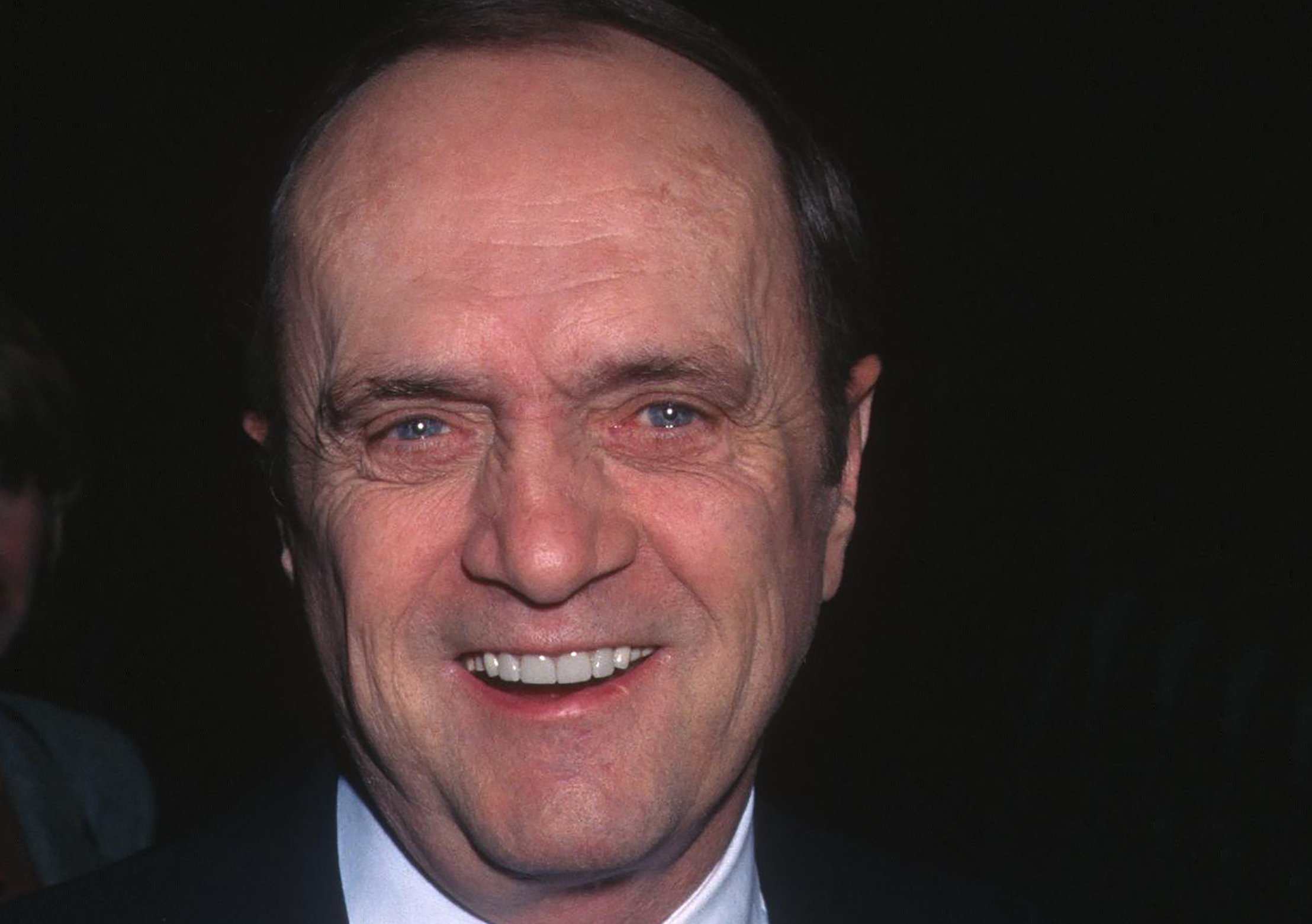 Ron Galella, Ltd., Getty Images
Ron Galella, Ltd., Getty Images
7. He Was A Virtual Unknown
By chance, Newhart’s recordings eventually landed in the hands of radio DJ Dan Sorkin. Sorkin, seeing the potential for comedy gold, introduced Newhart to Warner Bros Records, which, despite having little experience in comedy, signed the unheard of oddity that was Newhart in 1959.
It was a long shot—but boy, did it pay off.
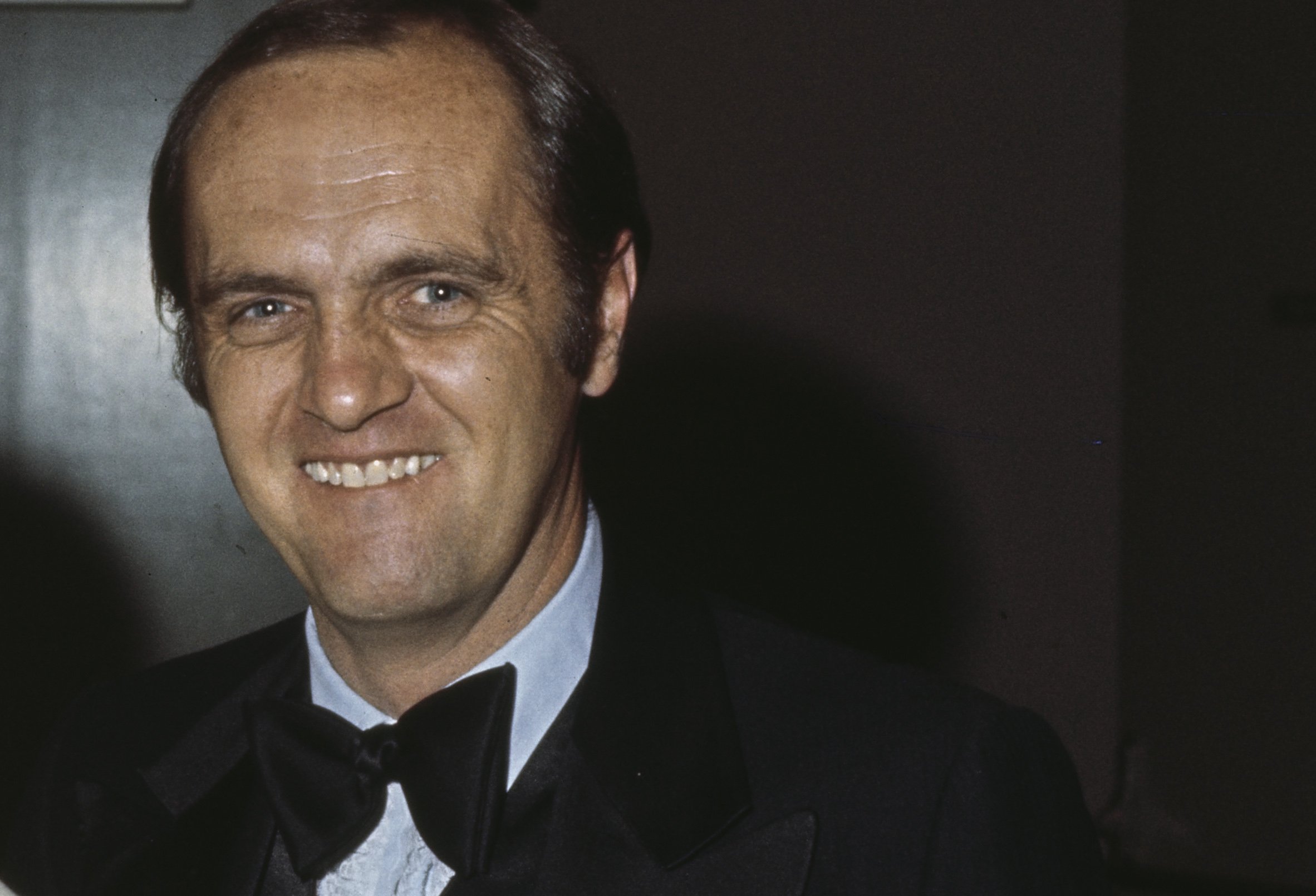 Michael Ochs Archives, Getty Images
Michael Ochs Archives, Getty Images
8. He Made Comedy Albums
Unlike most comedians, Newhart didn’t need to hit the nightclub circuit to build an audience. Instead, he recorded his routines and let the albums do the work. Even in the studio, his deadpan delivery and imaginative one-sided conversations elicited peals of laughter. But there was something oddly familiar about it all.

History's most fascinating stories and darkest secrets, delivered to your inbox daily.
9. He Perfected The Art Of Talking To Himself
Newhart’s stand-up routine was deceptively simple. He often played the “straight man” in imaginary phone conversations, letting the audience’s imagination infer the absurdity from the other end of the call. The format, equal parts awkward and hilarious, made his comedy stand out.
But even still, his level of success was staggering.
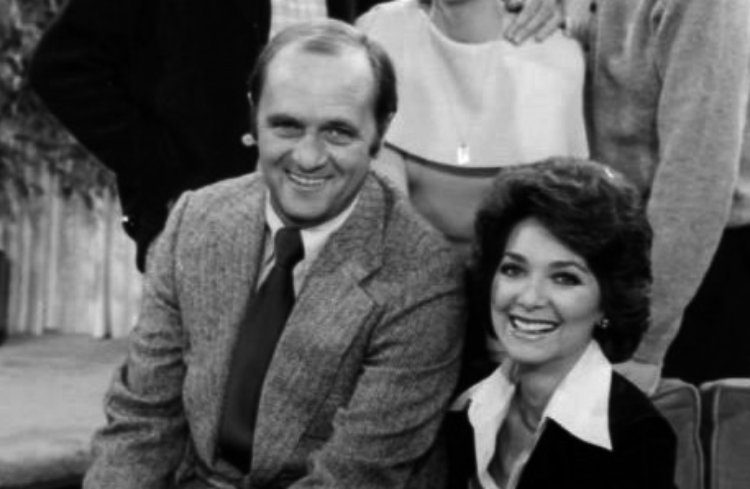 CBS Television, Wikimedia Commons
CBS Television, Wikimedia Commons
10. His First Comedy Album Made History
Fresh off the heels of his deal with Warner Bros, Newhart released his first ever comedy album, The Button-Down Mind of Bob Newhart. The album wasn’t just a success—it was a cultural phenomenon. Much to Newhart’s surprise, the album topped the Billboard charts, making him the first comedian to claim the number-one spot and netted him a Grammy for Album of the Year.
And that was just his opening act.
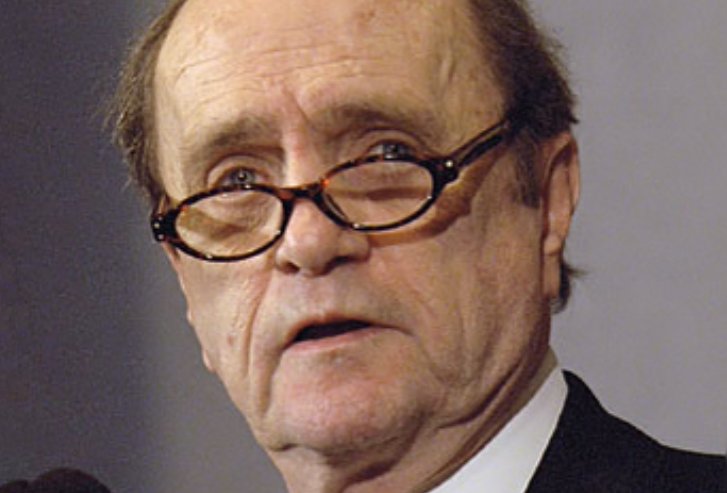 Jim Wallace, CC BY 2.0, Wikimedia Commons
Jim Wallace, CC BY 2.0, Wikimedia Commons
11. He Was #1 And #2
Newhart struck gold again just six months later with The Button-Down Mind Strikes Back!, a follow-up album that won him another Grammy. At one point, both of his albums held the top two spots on the charts—a feat few musicians, let alone comedians, have ever pulled off.
With his star power reaching unparalleled heights, his next move was inevitable.
 CBS Television, Wikimedia Commons
CBS Television, Wikimedia Commons
12. He Got His Own TV Show—And Then Lost It
With his signature style cemented in comedy history, Newhart made the leap to television in 1961 with The Bob Newhart Show. The show was an instant success with critics, seeing Newhart snag an Emmy nomination and a Peabody Award. However, to everyone’s surprise, the show only lasted one season.
Audiences, however, weren’t ready to hang up the phone on Newhart just yet.
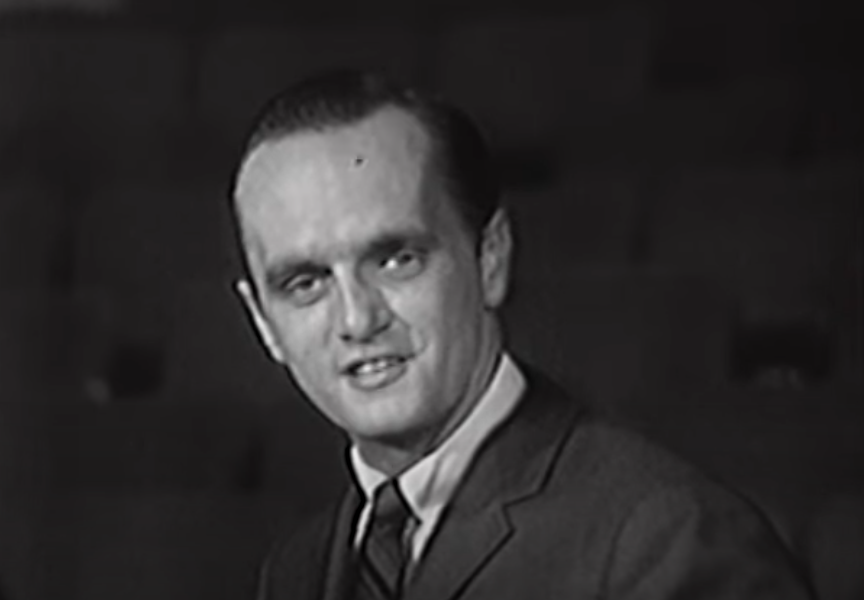 NBC, The Bob Newhart Show (1961–1962)
NBC, The Bob Newhart Show (1961–1962)
13. He Was A “Merry Marauder”
When Newhart won the Peabody Award for The Bob Newhart Show, the judges didn’t hold back their praise. Calling him a “merry marauder” who looked more like a choirboy than a comedian, they credited his “gentle satire” for slaying the “dragons that stalk our society”.
Clearly, a television screen was too small for his big talent.
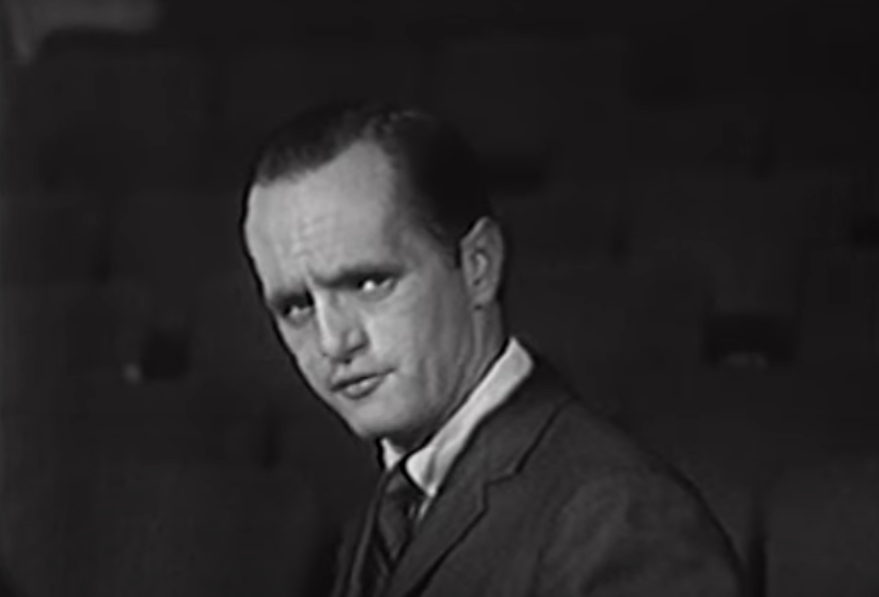 NBC, The Bob Newhart Show (1961–1962)
NBC, The Bob Newhart Show (1961–1962)
14. He Wanted To Get Out Of Hell
Despite his show only running for one season, Hollywood came calling, casting Newhart in the film Hell Is for Heroes. Excited as Newhart was to be on the big screen, there was just one problem—he was making bigger money from stand-up! Desperate to get back on the road, he begged the director to write off his character.
The director’s response was the best punchline.
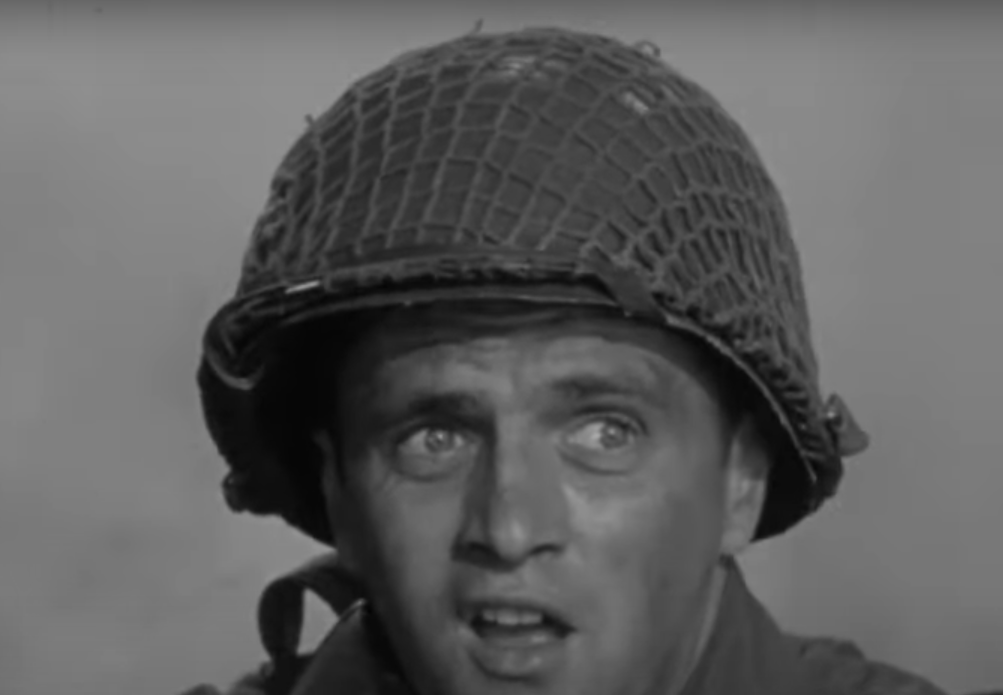 Paramount, Hell Is for Heroes (1962)
Paramount, Hell Is for Heroes (1962)
15. He Had To Stick It Out To The Bitter End
Despite his best efforts, Newhart couldn’t joke his way out of Hell Is for Heroes. He spent the entire production thinking up ways to get written out of the script, only for director Don Siegel to tell him, “You're in it to the end, soldier”. That wasn’t the only seemingly lifelong commitment that Newhart made.
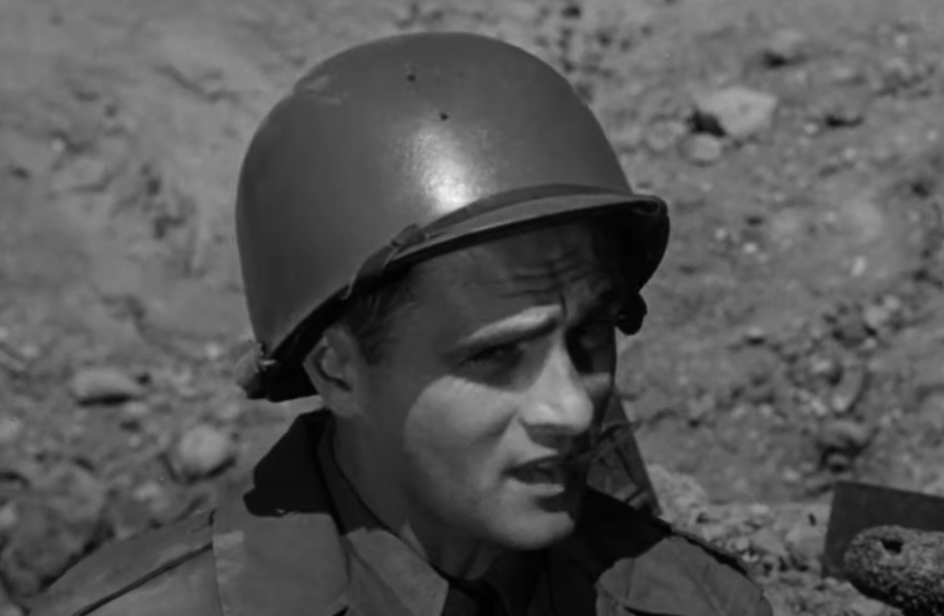 Paramount, Hell Is for Heroes (1962)
Paramount, Hell Is for Heroes (1962)
16. He Married Into Show Business
Newhart was a newbie to show business, but, in 1963, he married Hollywood royalty. His bride, Virginia “Ginnie” Quinn, was the daughter of Hollywood character actor Bill Quinn. The two had met through their mutual friend, comedian Buddy Hackett, who claimed he had the perfect woman for Bob.
Turns out, he was right—the couple stayed together for 60 years.
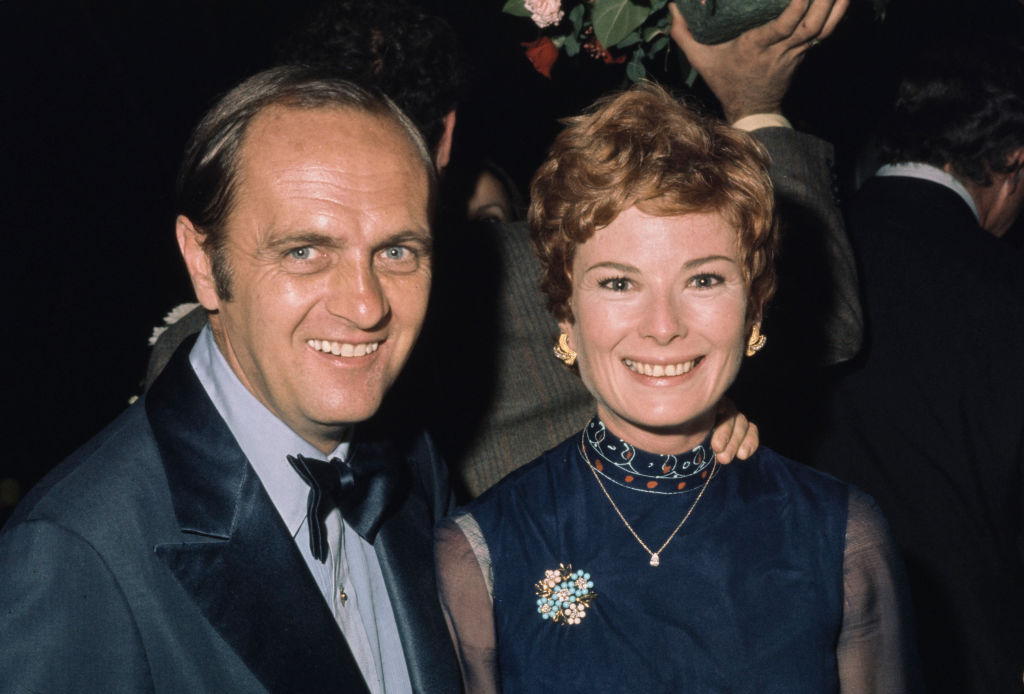 Michael Ochs Archives, Getty Images
Michael Ochs Archives, Getty Images
17. He Had A Big Catholic Family
Over the course of their marriage, Bob and Ginnie had four children—Robert, Timothy, Jennifer, and Courtney—and later, 10 grandchildren. As devout Catholics, they raised their kids in the faith and kept family at the center of their lives. Of course, being a family man never stopped Newhart from performing.
Particularly if his audience members were even more famous than he was.
18. He Had Royal Fans
Newhart’s dry wit wasn’t just a hit with everyday audiences—it also charmed royalty. In 1964, he performed at the Royal Variety Performance in London, entertaining none other than Queen Elizabeth II. With his signature stammering, deadpan style, he proved that his comedy was for everyone—from the commoner to the Queen.
He just needed the right way to showcase his talents.
19. He Made A Demanding Debut
With his fame only continuing to grow, MTM Enterprises approached Newhart for a second TV series, again called The Bob Newhart Show. But this time, to ensure the series lasted longer than a season, Newhart had two demands:
First, he had them make his character a psychologist instead of a psychiatrist, so the show wouldn't be mocking the seriously mentally ill. Second, he insisted his character have no kids to avoid the tired trope of the bumbling sitcom dad.
His instincts paid off.
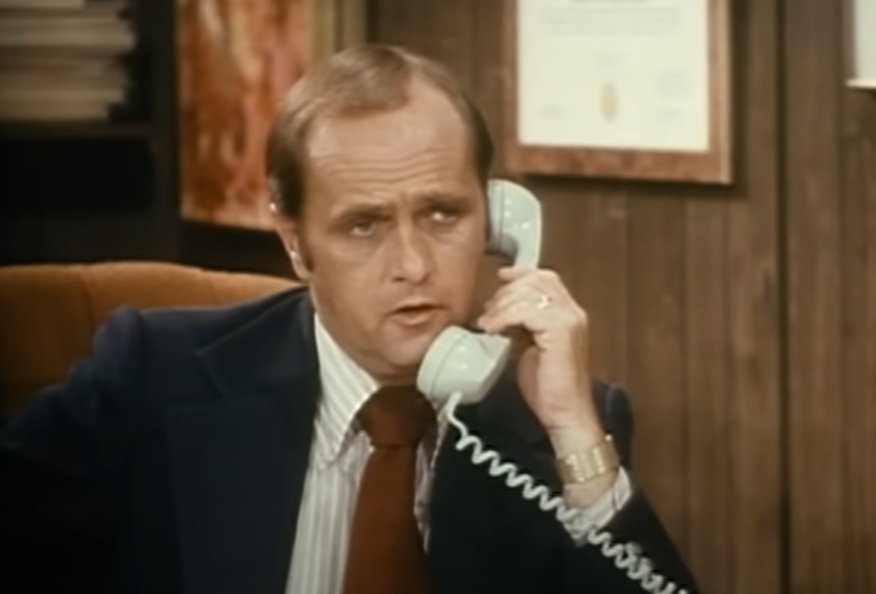 CBS, The Bob Newhart Show (1972–1978)
CBS, The Bob Newhart Show (1972–1978)
20. He Landed A Saturday Night Hit
Paired with Suzanne Pleshette as his TV wife, Newhart brought his subtle humor to the role of psychologist Bob Hartley in his new show. The Bob Newhart Show became a staple of CBS’s powerhouse Saturday night lineup, alongside classics like M*A*S*H and The Mary Tyler Moore Show.
It was an instant hit with audiences—and a riot behind the scenes.
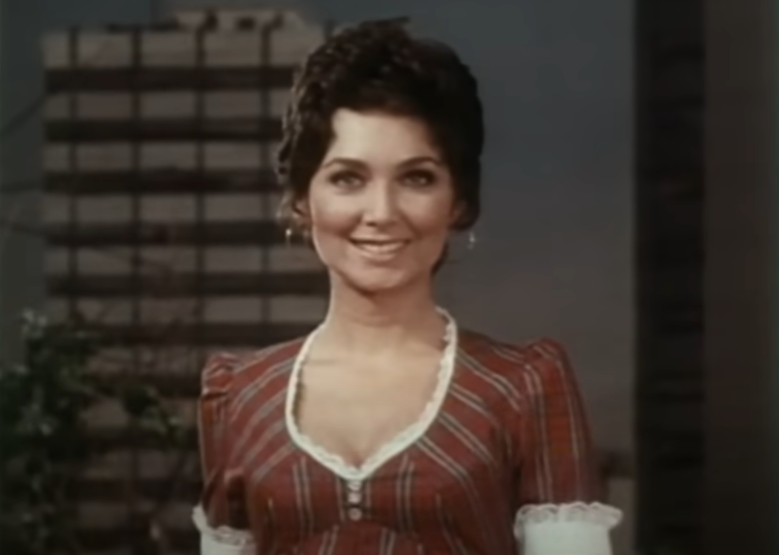 CBS, The Bob Newhart Show (1972–1978)
CBS, The Bob Newhart Show (1972–1978)
21. He Was A Good Boss
Despite playing the “straight man” on his new hit TV series, Newhart was nothing but laughs behind the scenes. His co-star, Marcia Wallace, later recalled how well the cast got along, and Newhart himself grew close to both Wallace and Pleshette. Unlike his character, he didn’t need therapy. But, he did need some help.
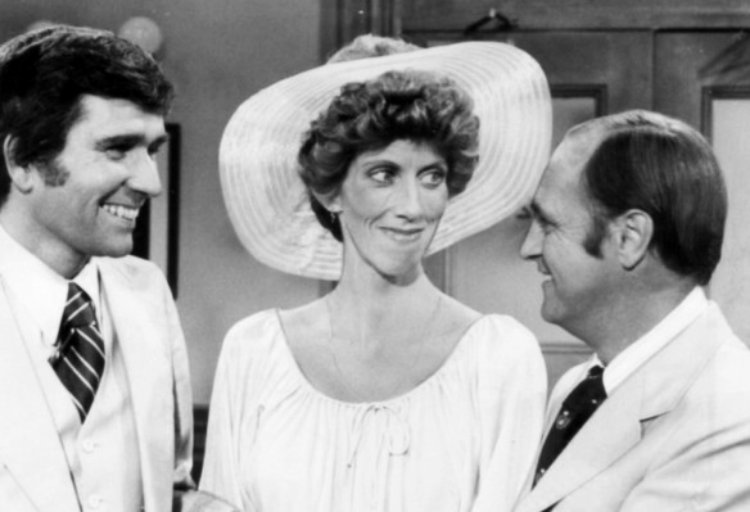 CBS Television, Wikimedia Commons
CBS Television, Wikimedia Commons
22. He Couldn’t Remember His Lines
For all his talent, Newhart had one major weakness: remembering his lines. Rather than risk flubbing jokes and ruining a take, Newhart wrote his lines on cue cards and hid them in secret spots around the set. Funny enough, he managed to ruin take after take thanks to another little quirk of his.
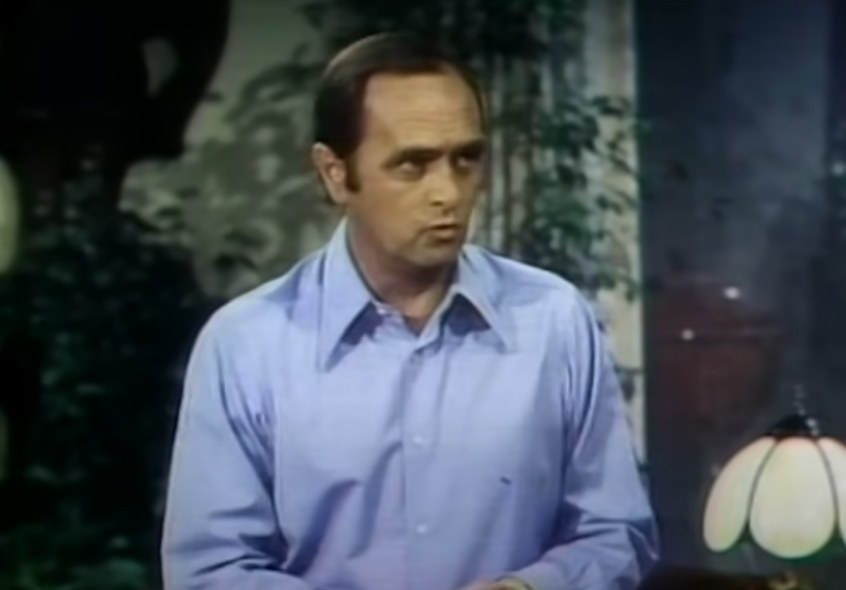 CBS, The Bob Newhart Show (1972–1978)
CBS, The Bob Newhart Show (1972–1978)
23. He Couldn’t Keep a Straight Face
As the king of deadpan humor, Newhart could keep a straight face better than anyone. But even he had his limits. Scenes that he filmed with Merie Earle, who played his patient Mrs Loomis, turned into laugh riots. Earle’s delivery was so unintentionally funny that Newhart often broke character and broke in peals of laughter, forcing multiple takes just to get through a scene.
At times, however, he was serious as a stroke.
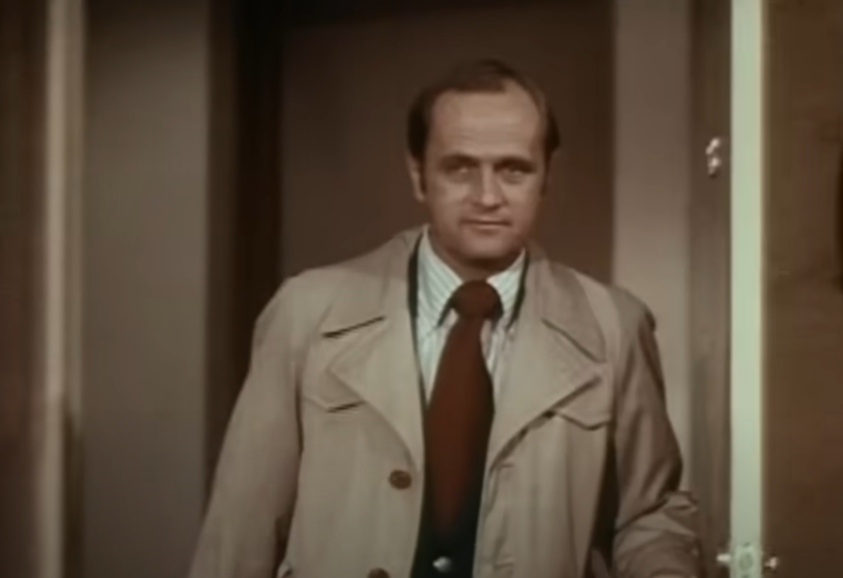 CBS, The Bob Newhart Show (1972–1978)
CBS, The Bob Newhart Show (1972–1978)
24. He Didn’t Want Any Children—On Set, That Is
By 1977, The Bob Newhart Show was winding down, but the producers weren’t ready to let it go. In a desperate ploy, they pitched a plot twist: a pregnancy for Newhart’s on-screen wife. Newhart, still committed to keeping his show free of sitcom dad clichés, balked at the idea.
“I told the creators I didn't want any children,” he said. But this time, no one was listening.
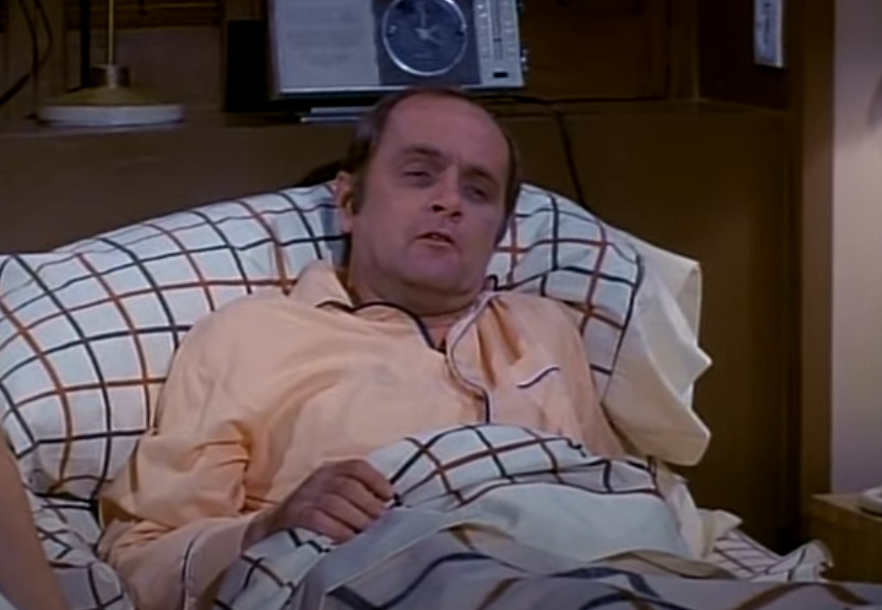 CBS, The Bob Newhart Show (1972–1978)
CBS, The Bob Newhart Show (1972–1978)
25. He Asked A Pointed Question
Despite Newhart’s objections, the show’s producers went ahead and put together a script that put a bun in his on-screen wife’s proverbial oven. When Newhart read the defiant script, he conceded that it was hilarious—and so was his answer. Coolly, the TV comedian replied, “Who are you going to get to play Bob?”
But the joke was on Newhart.
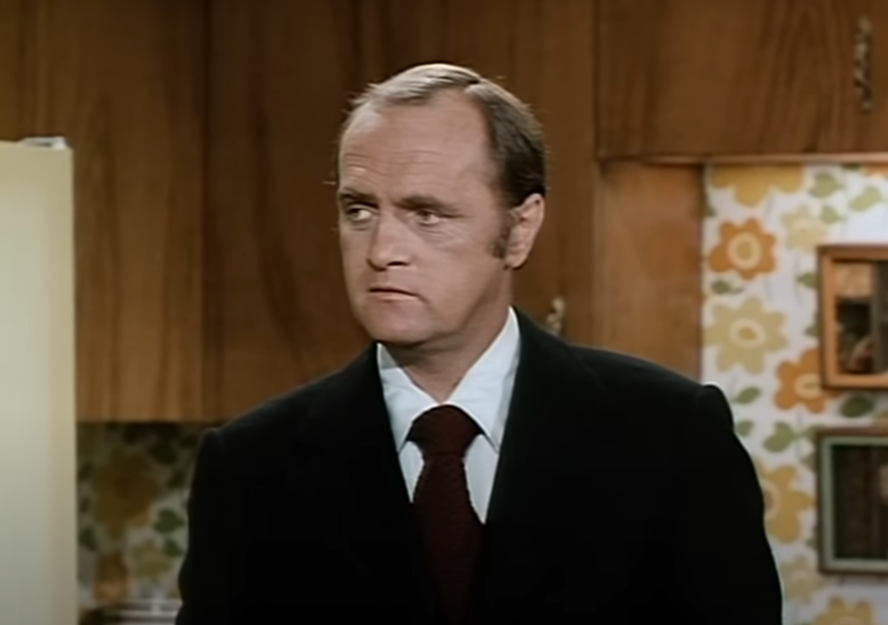 CBS, The Bob Newhart Show (1972–1978)
CBS, The Bob Newhart Show (1972–1978)
26. He Was A Sitcom Dad—For Real
While his on-screen wife was possibly going to be dealing with a fictional pregnancy, Newhart was dealing with the real thing. In late 1977, his wife gave birth to their daughter, Jenny. The timing caused Newhart to miss several episodes. In the end, however, it gave him a brilliant idea.
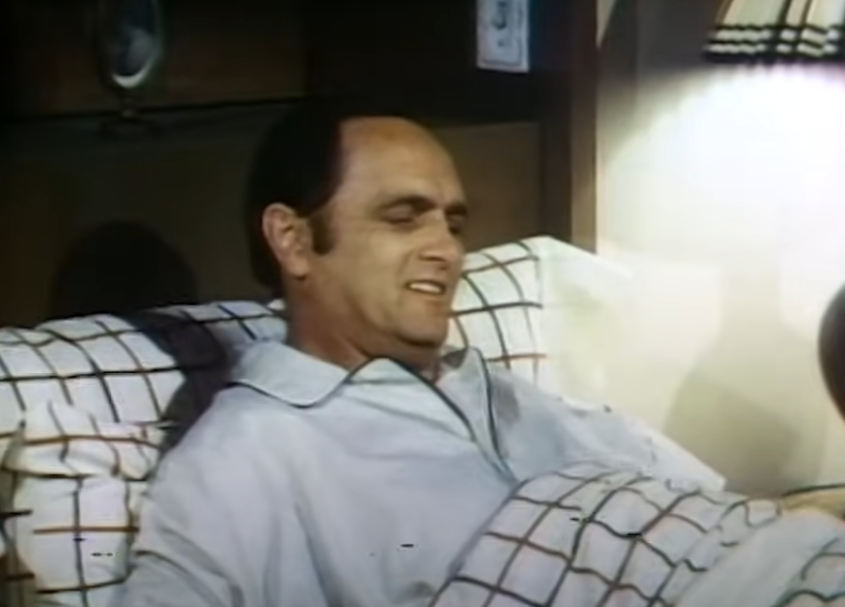 CBS, The Bob Newhart Show (1972–1978)
CBS, The Bob Newhart Show (1972–1978)
27. His Nightmare Came True
Even though Newhart shot down the pregnancy plot line, he still found a way to make the show’s producers happy—sort of. In one episode, his on-screen wife revealed she was expecting. But before wheeling her into the delivery room, the audience learned the whole thing was just a dream sequence—a terrible nightmare in Newhart’s character’s imagination.
He was less tactful in dealing with other on-screen disagreements.
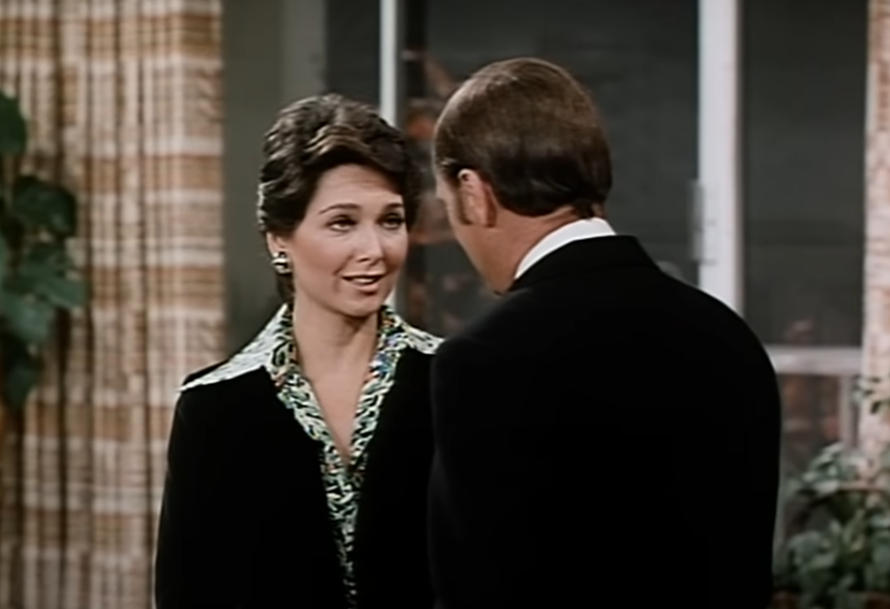 CBS, The Bob Newhart Show (1972–1978)
CBS, The Bob Newhart Show (1972–1978)
28. He Had A Canine Critic
Marcia Wallace, who played Carol on The Bob Newhart Show, recalled Newhart’s unique way of rejecting bad lines. Instead of complaining to the writers directly, he’d kneel down and read the line to her dog, Maggie. If Maggie yawned, Newhart would shrug and say, “See, I told you it’s not funny!”
Newhart was ready to move on to funnier pastures anyway.
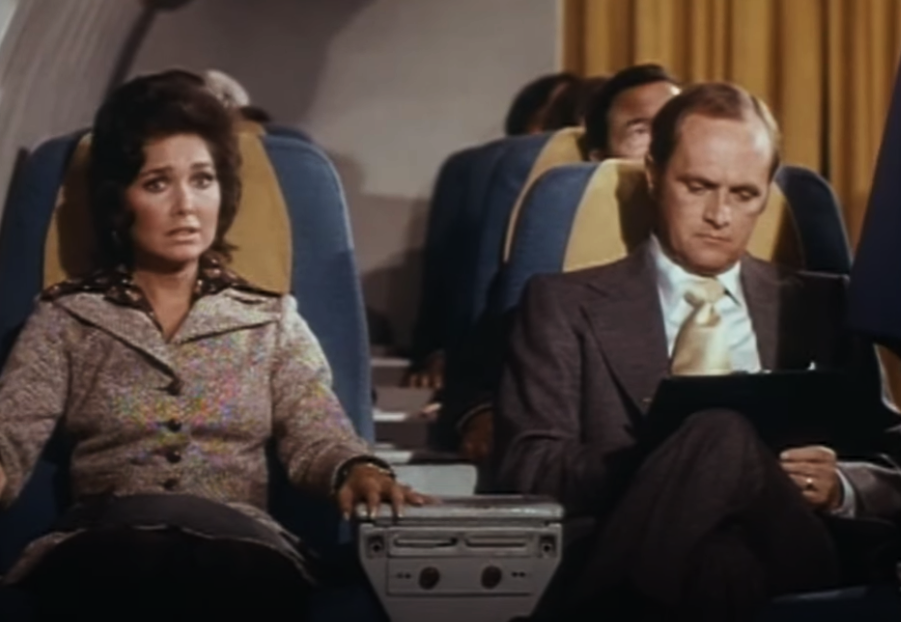 CBS, The Bob Newhart Show (1972–1978)
CBS, The Bob Newhart Show (1972–1978)
29. He Landed Another Sensational Sitcom
By 1982, Newhart was ready for a new sitcom. Teaming up with new producers and writers, he created Newhart, playing Vermont innkeeper and TV host Dick Loudon. Just as with The Bob Newhart Show, it became an instant hit, racking up viewers and Emmy nominations.
However, an unexpected event nearly ended the show—and Newhart’s life—prematurely.
30. He Smoked Himself Into The ER
Newhart had few vices in life—but the one he did have nearly cost him everything. In 1985, he was diagnosed with secondary polycythemia from his decades-long habit of smoking more than a chimney in the North Pole. Newhart’s doctors gave him a strict order: quit immediately.
Fortunately, Newhart was able to kick the habit before it had him kicking the bucket. And just in time to make TV history.
31. He Had The Best Series Finale In TV History
By 1990, after eight seasons and nearly 200 episodes, Newhart’s ratings had started to slip and Newhart was brainstorming ideas for a fitting finale. And what a finale it would be. TV Guide later ranked the series finale of Newhart as the best series ending in television history—one final stroke of genius from Newhart and his team.
But it took some careful planning to pull off.
32. He Leaked Fake Stories To The Press
To keep the show’s surprise ending under wraps, Newhart orchestrated a clever ploy. Before the final episode aired, he leaked a completely fake conclusion to the series to the press, ensuring that his real twist stayed a secret until the moment it hit the airwaves. The fake ending was so plausible that everyone believed it.
33. He Went Straight To Heaven
The phony finale that Newhart fed to the media was every bit as elaborate as his plan to conceal the real ending. In the fake one, Newhart’s character, Dick Loudon, would get hit in the head by a golf ball, keel over, and wake up in heaven. There, he’d meet God, played by either one of two veteran actors; George Burns or George C Scott.
The press bought the story—until the series finale aired.
34. He Was Dreaming The Whole Time
Thanks to Newhart’s clever ruse, his namesake show delivered one of TV’s most unexpected endings. In the series finale, Newhart’s character wakes up next to Suzanne Pleshette—his wife from The Bob Newhart Show—revealing that the entire Newhart series had been the bizarre dream of his Robert Hartley character.
The show then ended with the classic one-liner from Pleshette: “That’s what you get for eating Japanese food before bed”.
35. His Wife Deserved All The Credit
Newhart’s legendary series finale wasn’t actually Newhart’s idea. His wife thought it up! Frustrated by CBS’s constant time-slot changes, Newhart had been venting about the network when his wife jokingly made the offhand suggestion. But the rest of the show was all Newhart’s brainchild—and voice.
36. He Roared Like A…Wet Cat
Viewers who watched Newhart until the very end may have noticed something peculiar. During the iconic MTM Productions closing logo where a lion roars ferociously, Newhart didn’t follow the script. Instead of the usual “roar”, Newhart redubbed the audio himself with a hilariously wimpy “meow”.
He may have been running out of ideas.
37. He Nearly Starred In The Sitcom
After his namesake sitcom ended, Newhart still wasn’t ready to give up on TV—even if he was out of ideas. After a brief return with 1992’s Bob, co-starring a pre-Friends Lisa Kudrow, Newhart had a funny idea. Given that he had starred in shows titled The Bob Newhart Show, Bob, and Newhart, he joked that his next sitcom should be called…The.
Thankfully, he appeared in a very different three-letter comedy.
38. He Knew Elf Was A Classic From The Start
Newhart had resigned himself to cameos when he received the script for a film he knew would be an instant classic: Elf. While others may have doubted the off-beat Will Ferrell script, Newhart knew that it was going to become a film that audiences would watch and rewatch every Christmas. But he wasn’t only about the laughs.
39. He Took A Dramatic Turn
Throughout his entire career, Newhart performed in comedies…as a comedian. But in 2003, he shocked audiences by stepping into a rare dramatic role on the classic series ER. His bold move to drama paid off. His performance was so compelling that it earned him his first Primetime Emmy nomination in nearly 20 years.
He was stepping outside of his comfort zone in more ways than one.
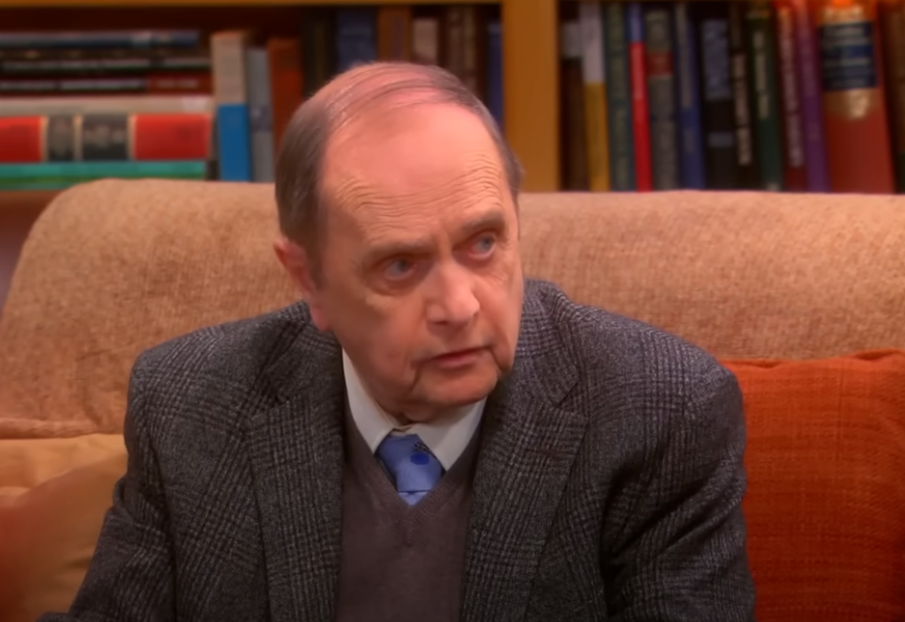 Warner Bros., The Big Bang Theory (2007–2019)
Warner Bros., The Big Bang Theory (2007–2019)
40. He Risked It All For A Gag
At the 2006 Primetime Emmy Awards, Newhart found himself in a peculiar predicament. As part of a comedic bit, he was locked in an airtight glass case with only three hours of oxygen. If the awards show ran over time (which they almost always do), well…let’s just say the stakes had never been higher for an Emmy ceremony.
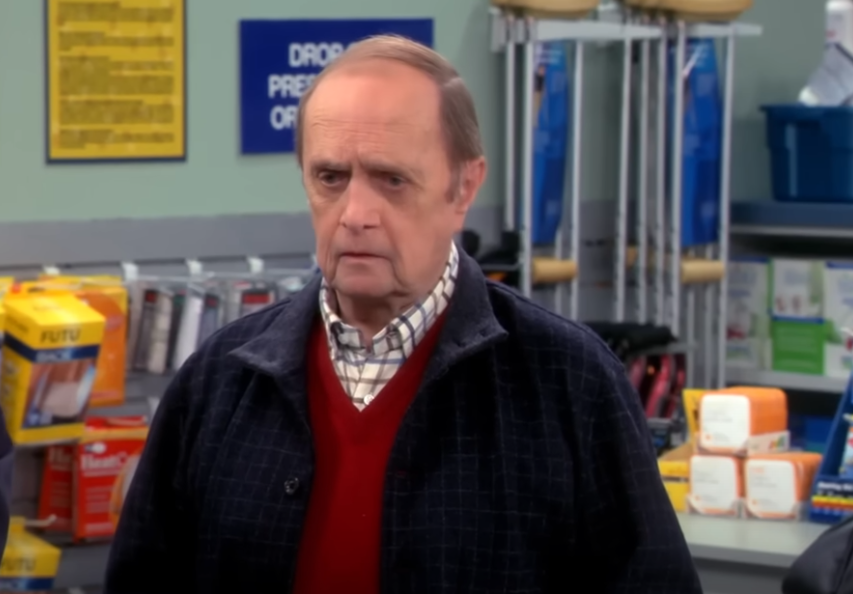 Warner Bros., The Big Bang Theory (2007–2019)
Warner Bros., The Big Bang Theory (2007–2019)
41. He Lived To Tell The Tale
Fortunately, Newhart “survived” his Emmy ordeal. The show wrapped up within the time limit, and he was released from his “life-threatening” situation just in time to present the award for Outstanding Comedy Series. For a guy known for his dry humor, this was perhaps the most literal example of “deadpan” comedy.
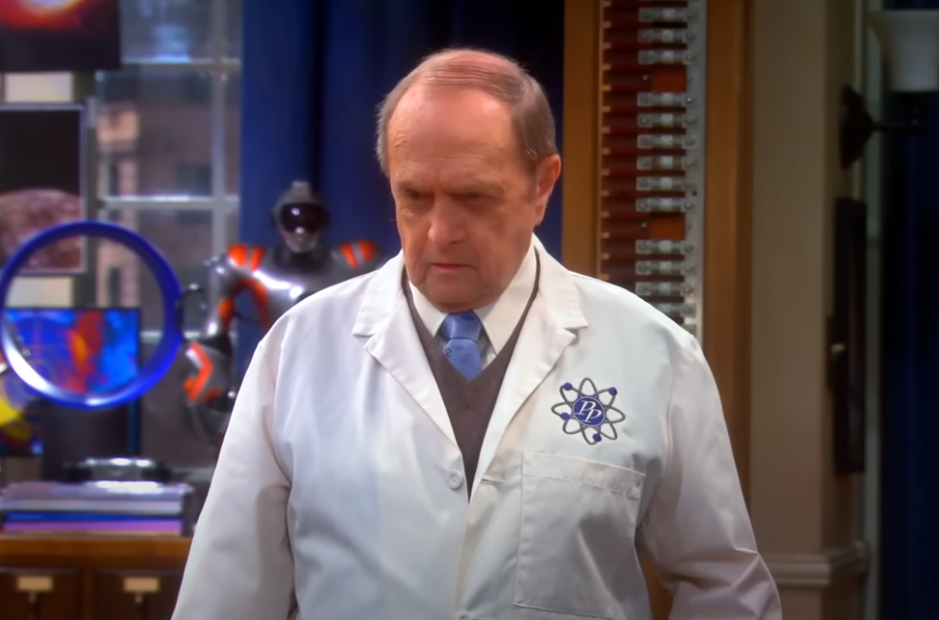 Warner Bros., The Big Bang Theory (2007–2019)
Warner Bros., The Big Bang Theory (2007–2019)
42. He Had A Lifelong Bromance
Throughout his career, Newhart worked with and befriended scores of other comedians, but none meant as much to him as Don Rickles. The two often vacationed together, appeared on The Tonight Show side-by-side, and even guest-starred on each other’s sitcoms.
Their friendship was so legendary that it became the subject of a 2023 documentary, Bob & Don: A Love Story.
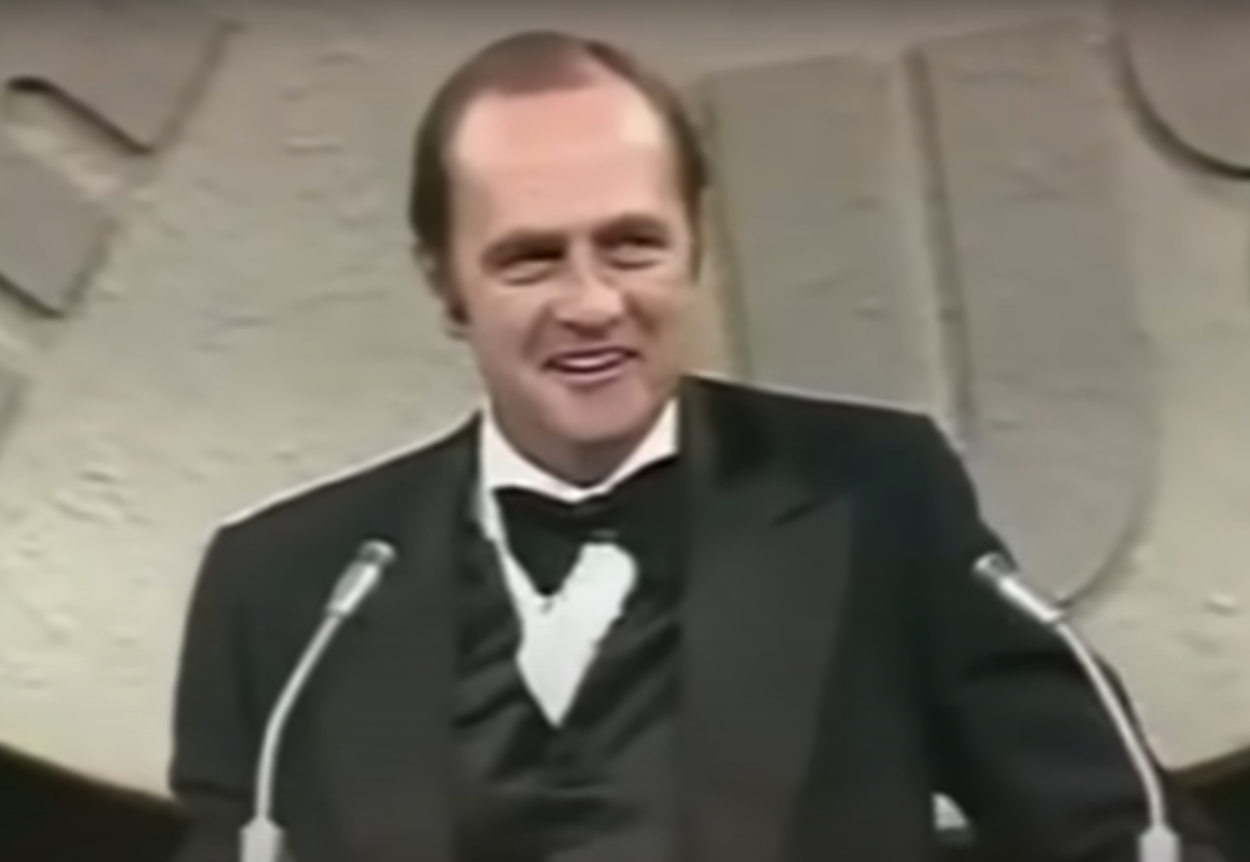 Apatow Productions, Bob and Don: A Love Story (2023)
Apatow Productions, Bob and Don: A Love Story (2023)
43. He Finally Won An Emmy
After decades in the business and a handful of hit TV shows, it shocked audiences to learn that Newhart had nothing to show for it—at least nothing golden. That is, until 2013 when he finally clinched his first Primetime Emmy Award. His winning performance? A guest role as Professor Proton on The Big Bang Theory.
Funny enough, he almost passed on the opportunity.
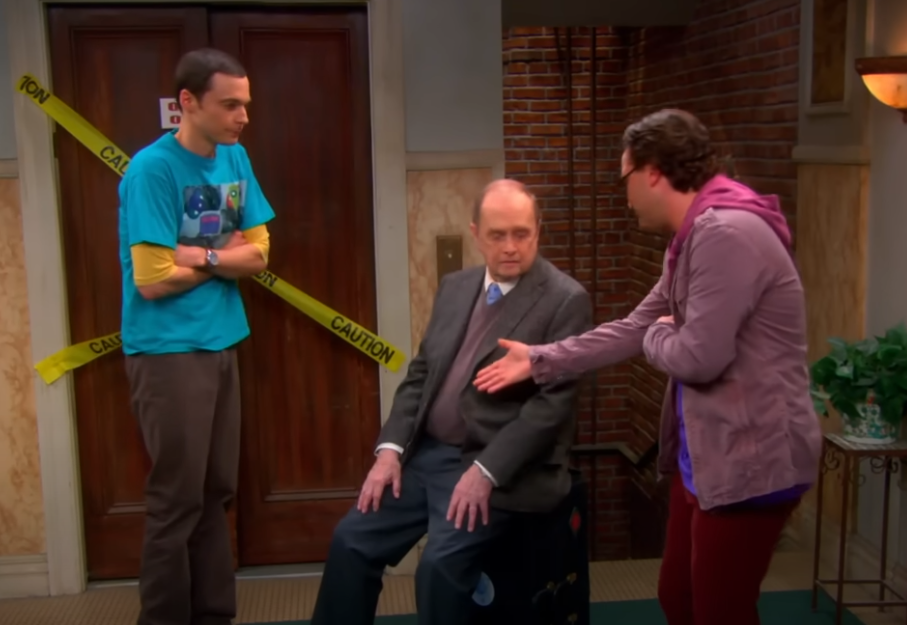 Warner Bros., The Big Bang Theory (2007–2019)
Warner Bros., The Big Bang Theory (2007–2019)
44. He Wouldn’t Simply Do A Cameo
Newhart wasn’t going to settle for a one-and-done cameo when the producers of The Big Bang Theory came calling. He only agreed to play Professor Proton in the hit series if the producers agreed to one condition: He had to have a recurring role. The show delivered, bringing him back for six episodes—and even finding a way to keep his character alive in the popular spinoff Young Sheldon.
He was, after all, a living legend.
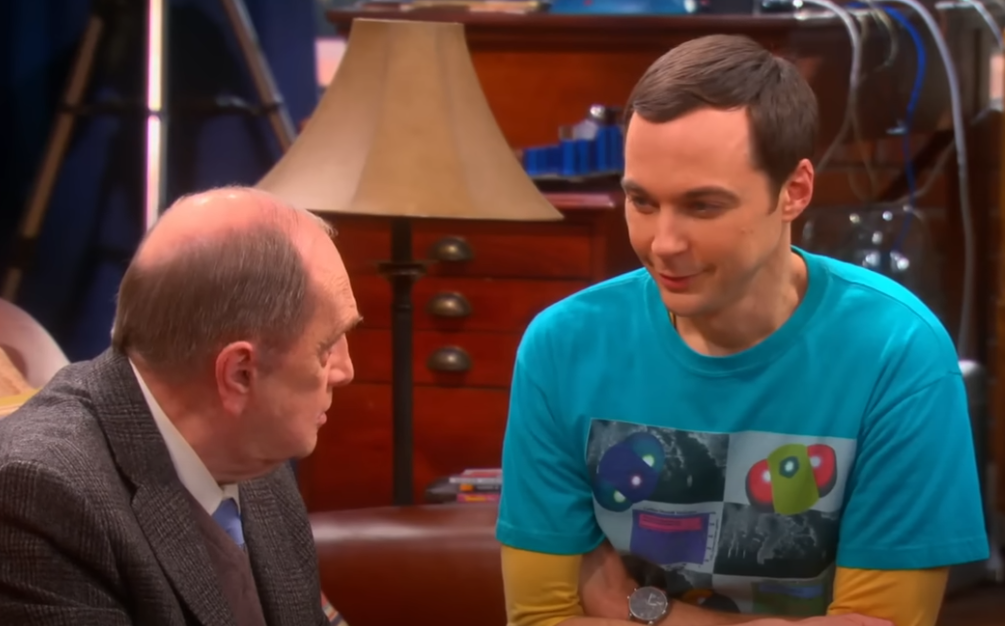 Warner Bros., The Big Bang Theory (2007–2019)
Warner Bros., The Big Bang Theory (2007–2019)
45. He Turned A Stammer Into A Superpower
That hesitant, stammering delivery that became part of Newhart’s comedic trademark wasn’t an act. “Truly, that's…the…way I talk,” he once said. But instead of trying to change it, he leaned into it—turning his natural rhythm into a masterclass in comedic timing that delighted audiences for decades. Right up until the very end.
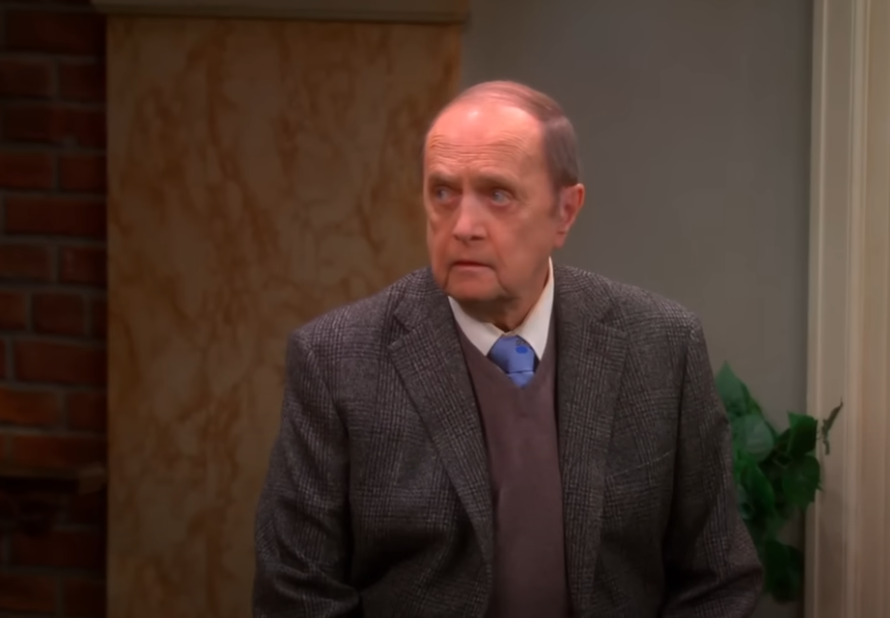 Warner Bros., The Big Bang Theory (2007–2019)
Warner Bros., The Big Bang Theory (2007–2019)
46. He Laughed With Us For 94 Years
On July 18, 2024, Newhart delivered his final punchline when he passed on at the age of 94. Tributes poured in from his adoring co-stars and fans—including from President Joe Biden! The president called him “a comedy legend and beloved performer who kept Americans laughing for decades”.
In the end, Newhart revealed the secret to his comedic genius.
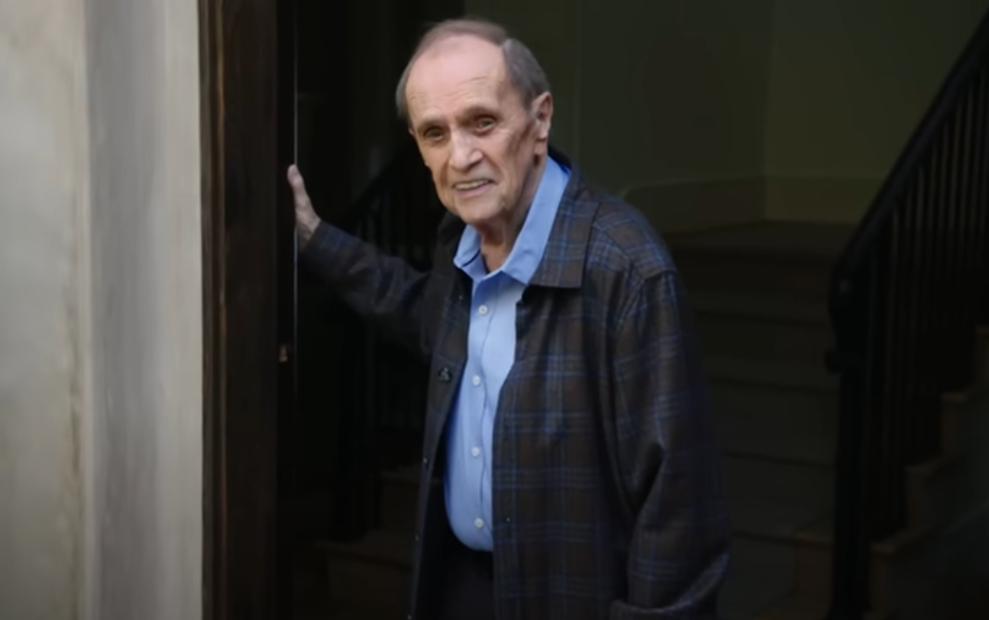 Apatow Productions, Bob and Don: A Love Story (2023)
Apatow Productions, Bob and Don: A Love Story (2023)
47. He Knew The Secret To Comedy
If there was one rule Newhart lived by—apart from never playing a hapless sitcom dad and always naming shows after himself—it was this: “Tension is very important to comedy. And the release of the tension—that's the laugh”.
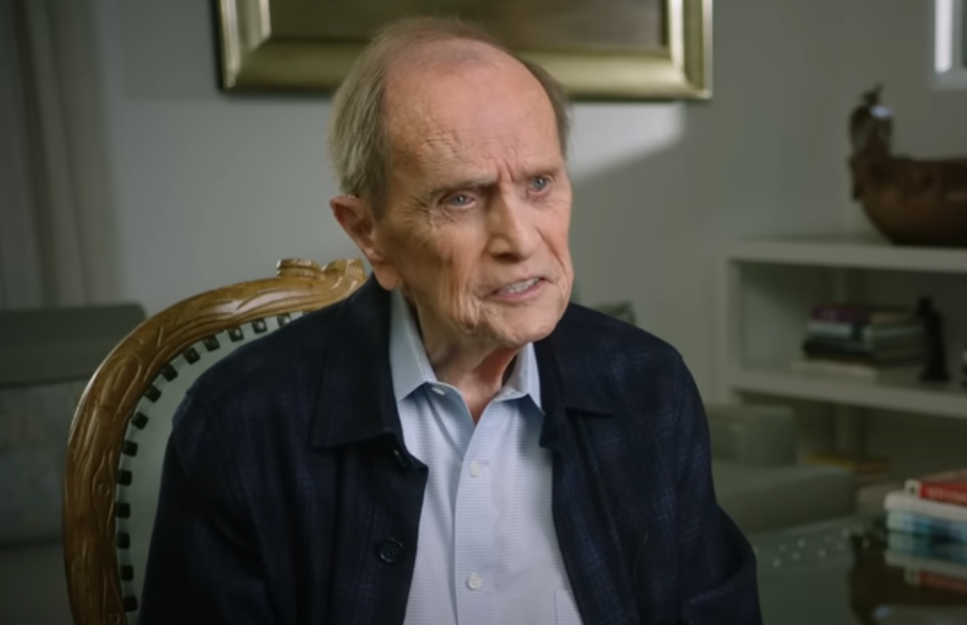 Apatow Productions, Bob and Don: A Love Story (2023)
Apatow Productions, Bob and Don: A Love Story (2023)
48. He Had Strong Ethical Standards
Bob Newhart's enviable career may never have happened if not for his conscience. After earning his degree in business, Newhart briefly pursued a legal career at Loyola University Chicago School of Law. However, his ambitions took a turn when one of his superiors asked him to perform an unspecified “unethical act” during his internship.
Instead of compromising his integrity, he walked away—and towards an unexpected future in comedy.
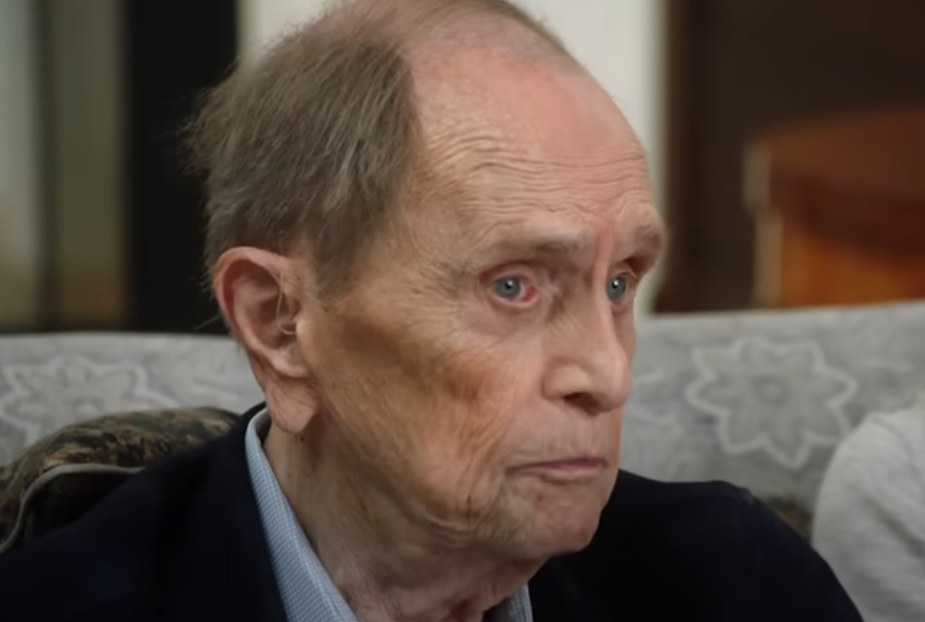 Apatow Productions, Bob and Don: A Love Story (2023)
Apatow Productions, Bob and Don: A Love Story (2023)
49. He May Have Been A Plagiarist
Late in his career, Newhart’s signature one-sided phone call routine had become legendary—but not without controversy. In a 2012 interview, fellow comedian Shelley Berman threw shade at Newhart, accusing him of ripping off the one-sided phone call act. The claim sparked debate, but Newhart had his response at the ready.
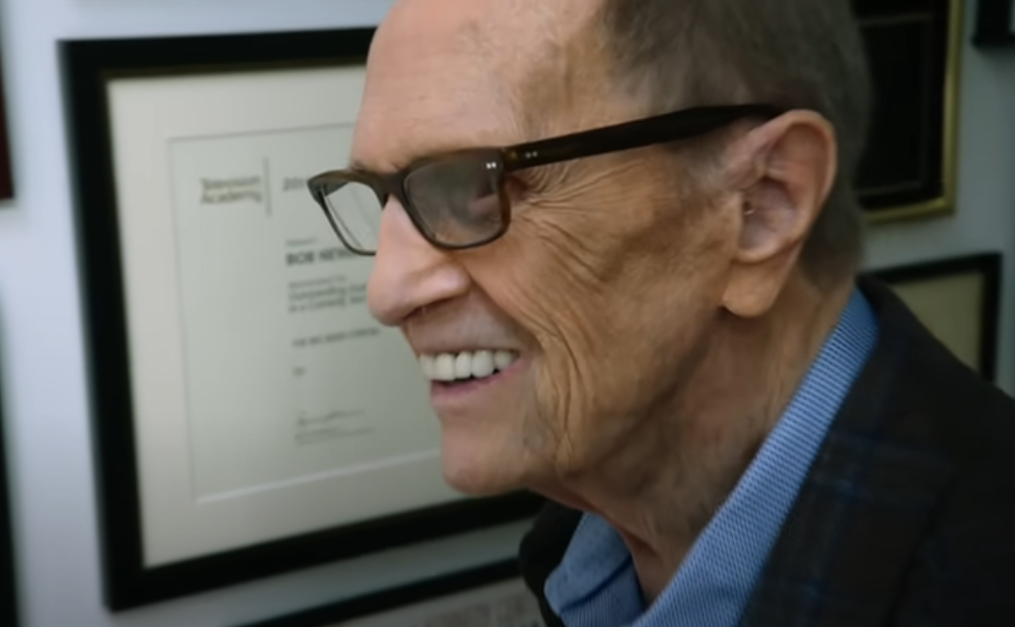 Apatow Productions, Bob and Don: A Love Story (2023)
Apatow Productions, Bob and Don: A Love Story (2023)
50. He Didn’t Let The Critics Get To Him
Despite Berman’s controversial accusation, Newhart never claimed to have invented the phone call routine, and he certainly wasn’t the first to use it. In fact, he even admitted that other comedians before him like George Jessel had pioneered the bit. Even so, Newhart’s original content and deadpan delivery added something special to the act.
You May Also Like:
The Surprising Darkness Of Roald Dahl
Rock n' Roll’s Maddest Musician
Ada Lovelace's Beautiful Mind Couldn't Save Her
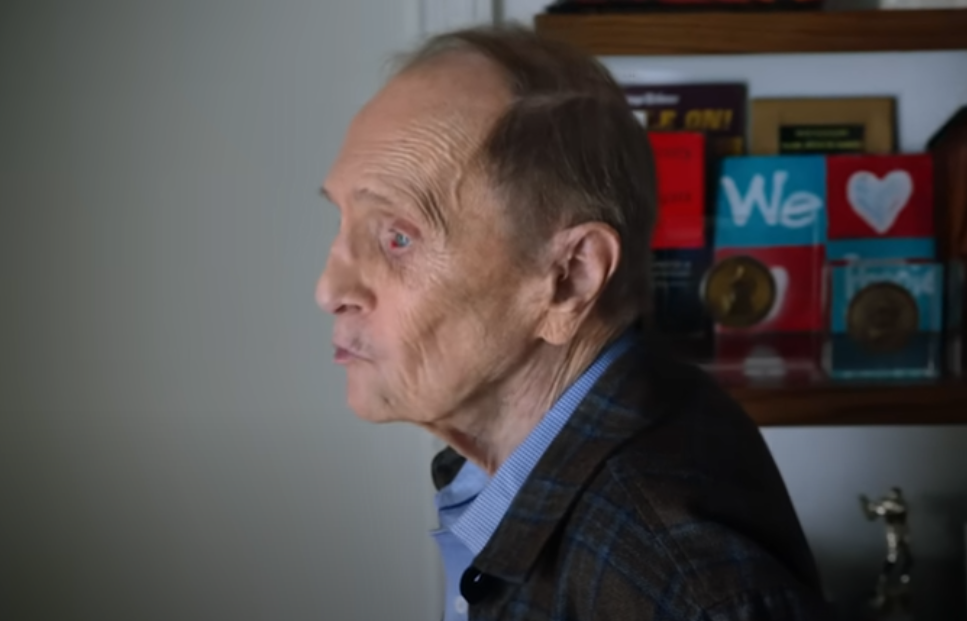 Apatow Productions, Bob and Don: A Love Story (2023)
Apatow Productions, Bob and Don: A Love Story (2023)

